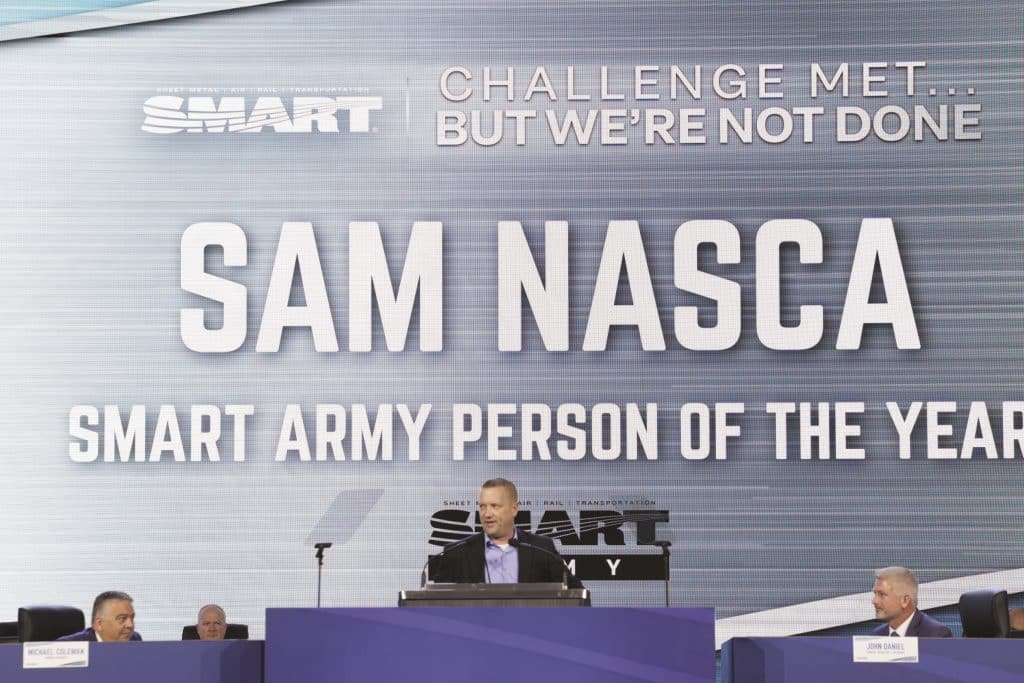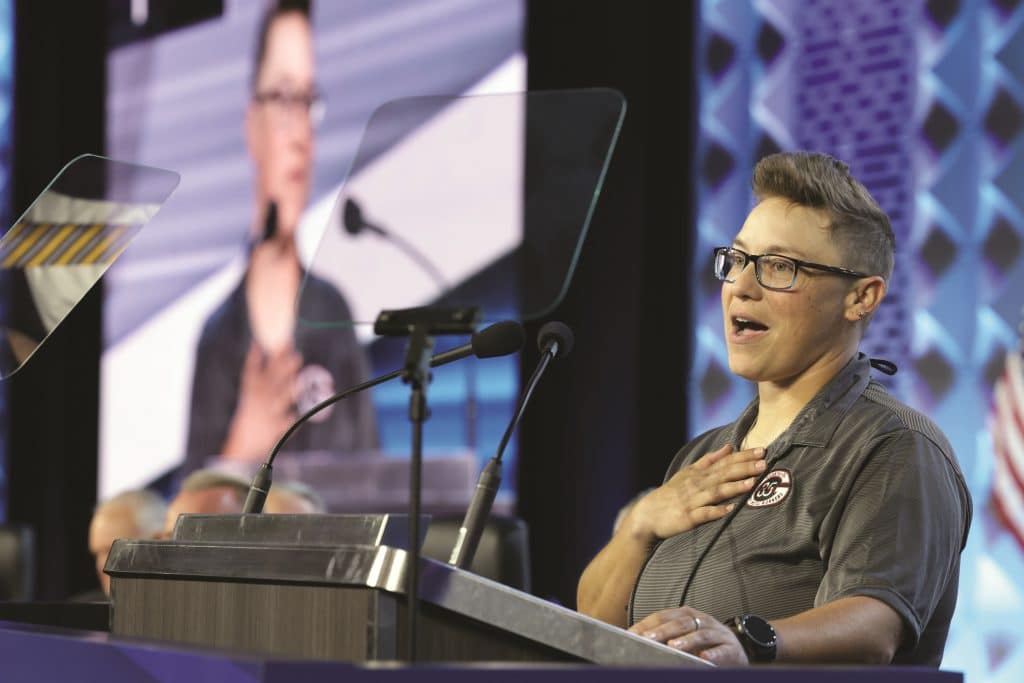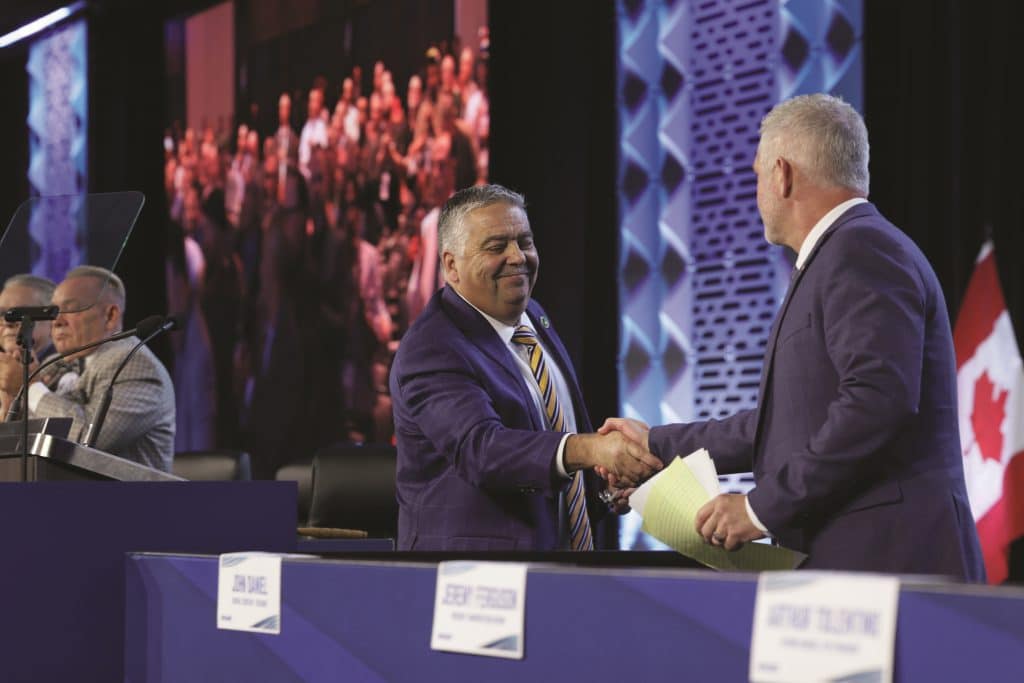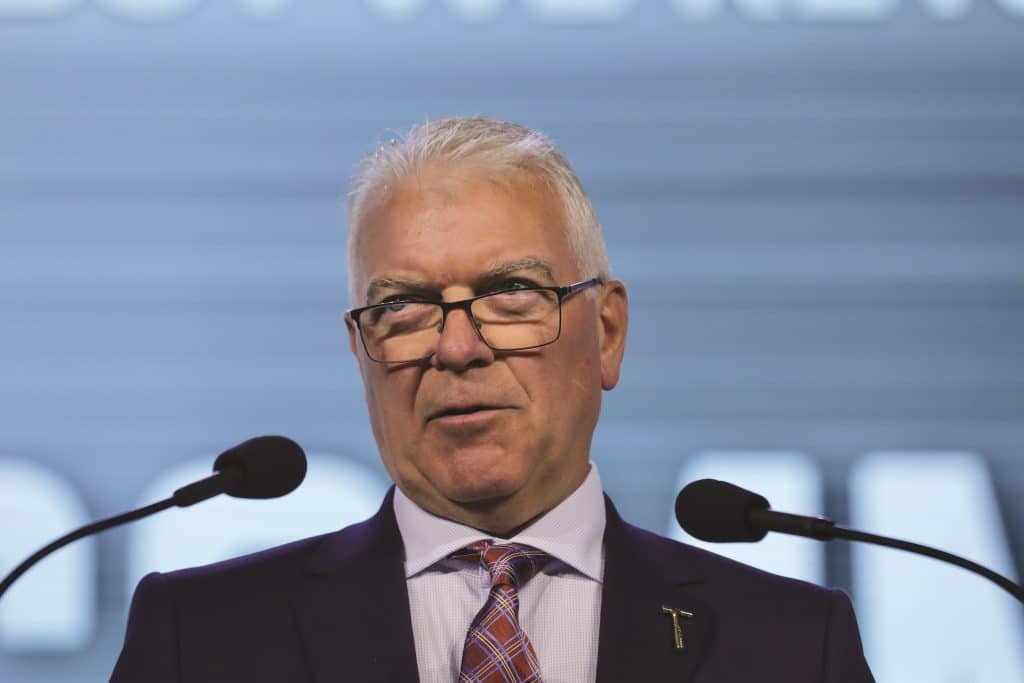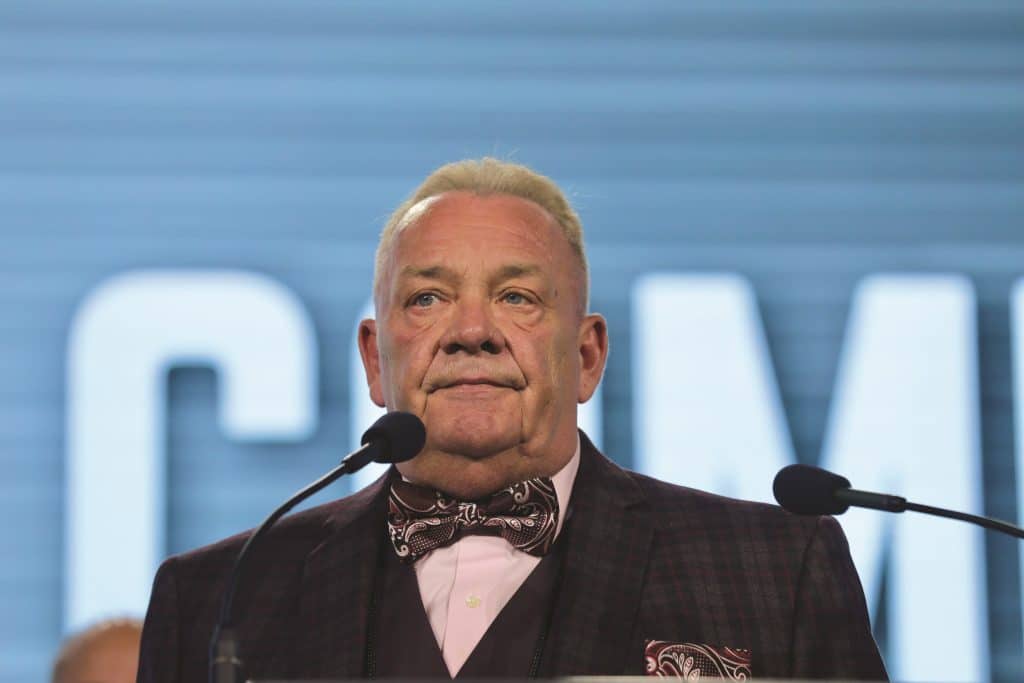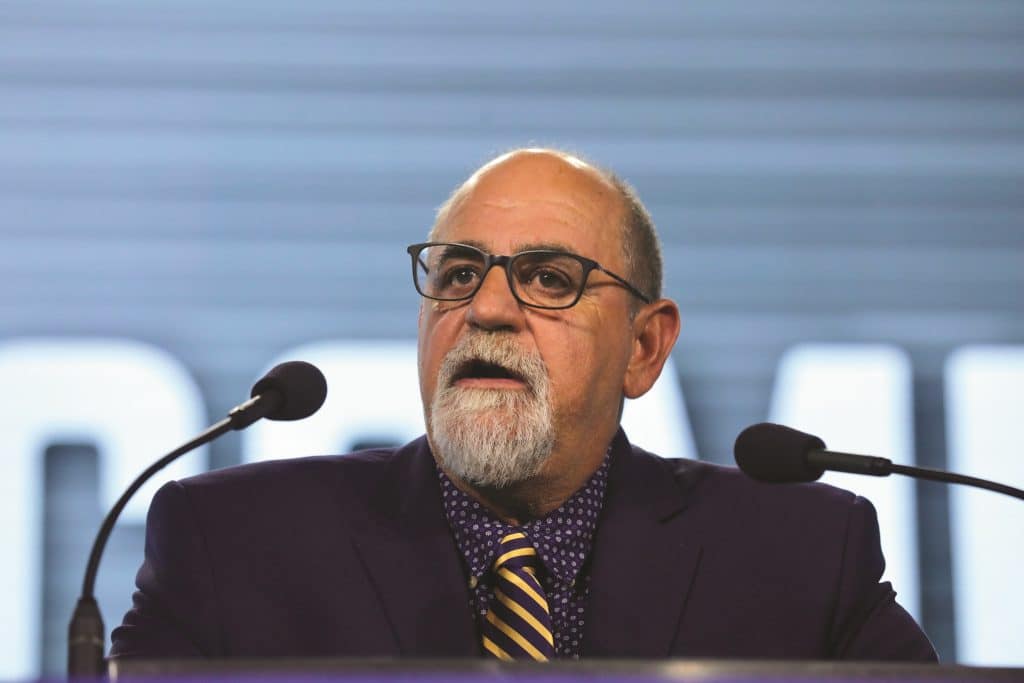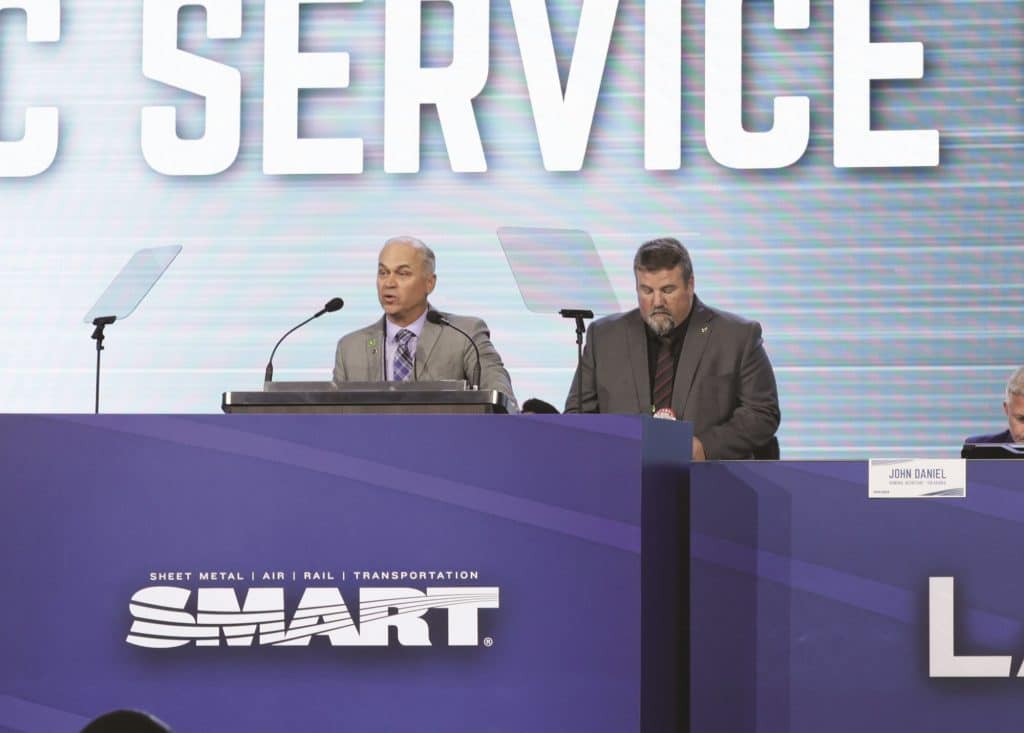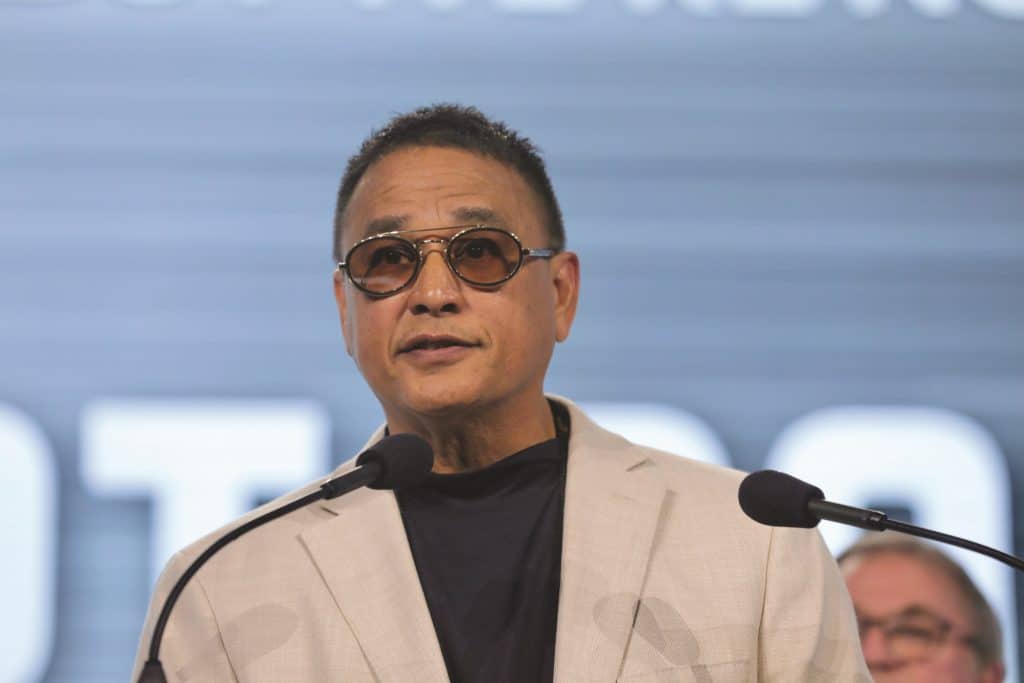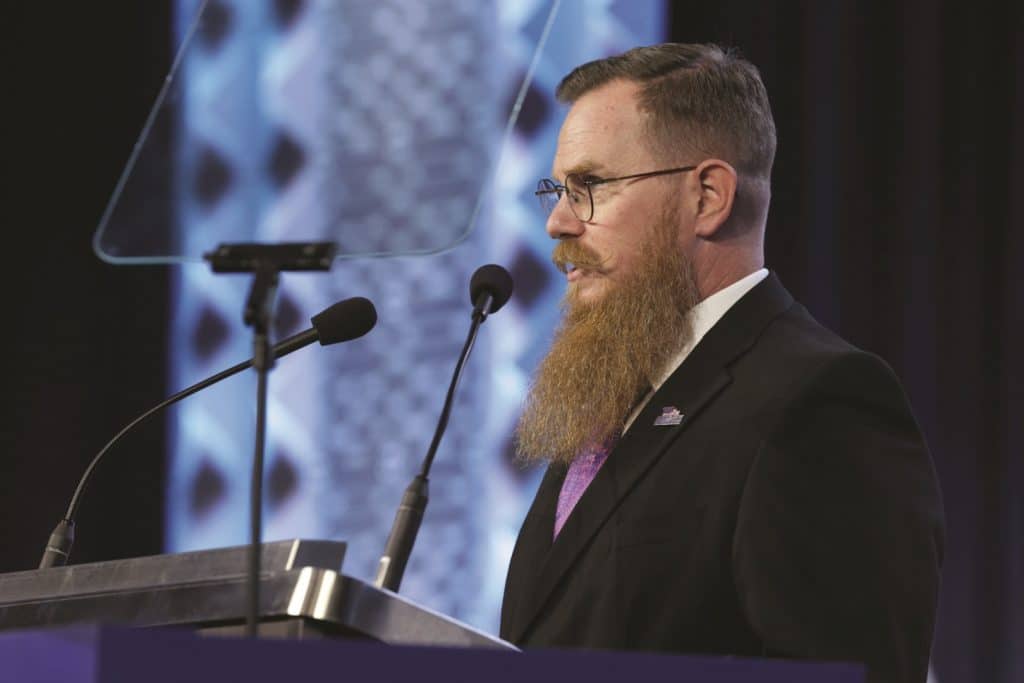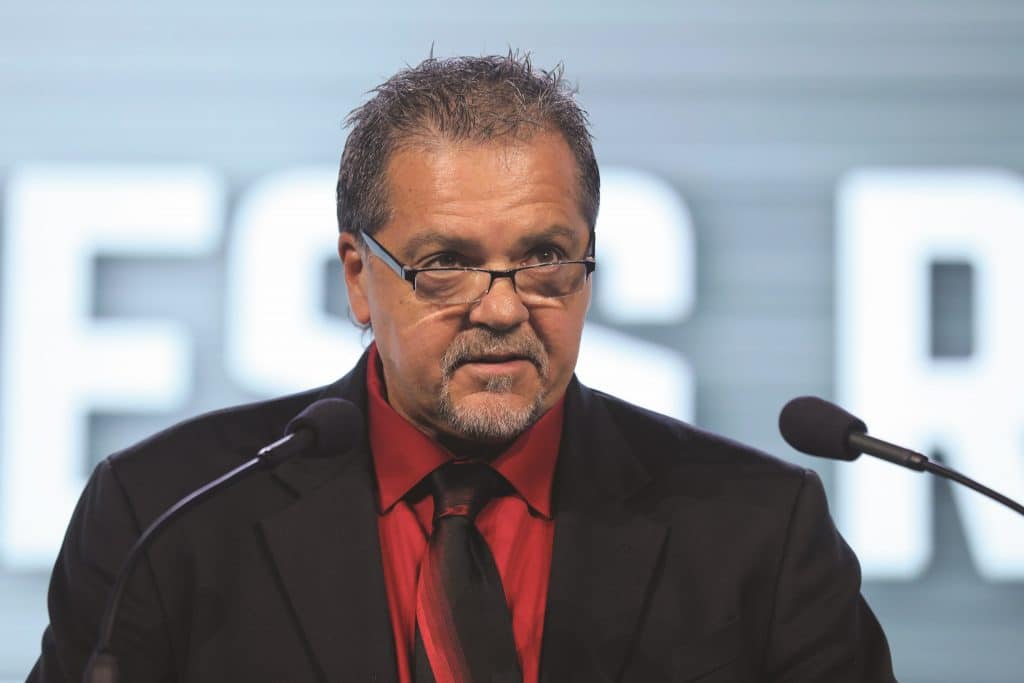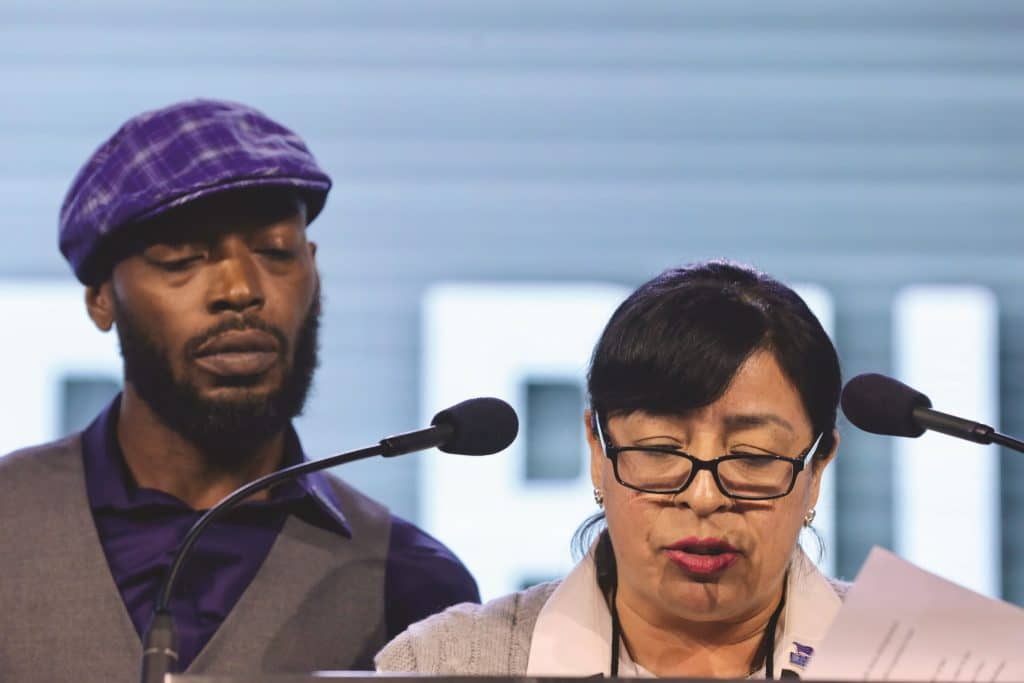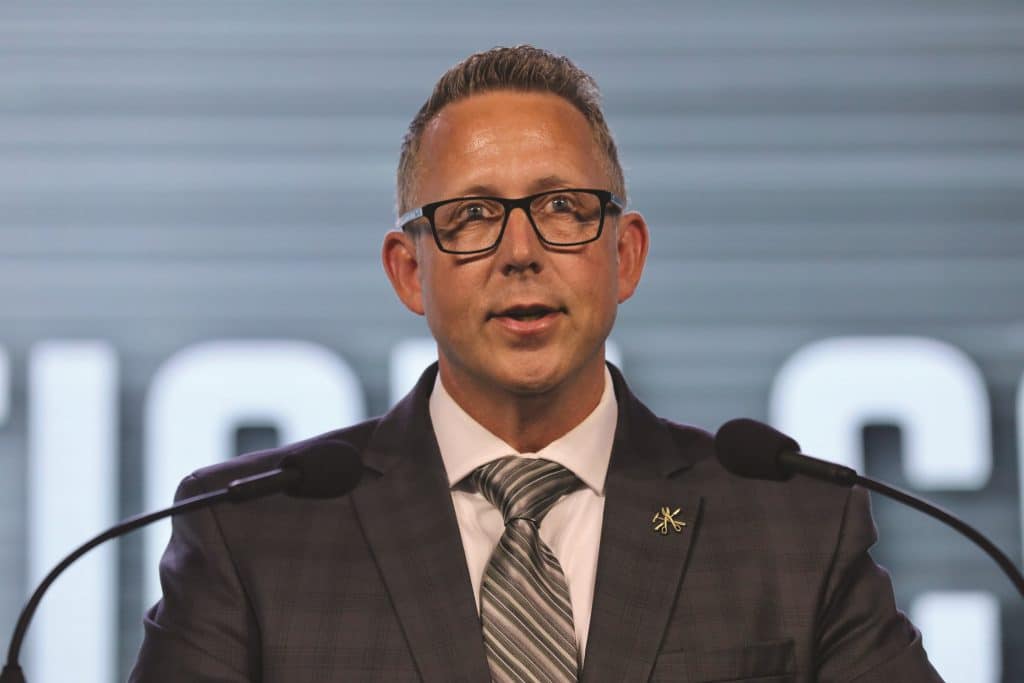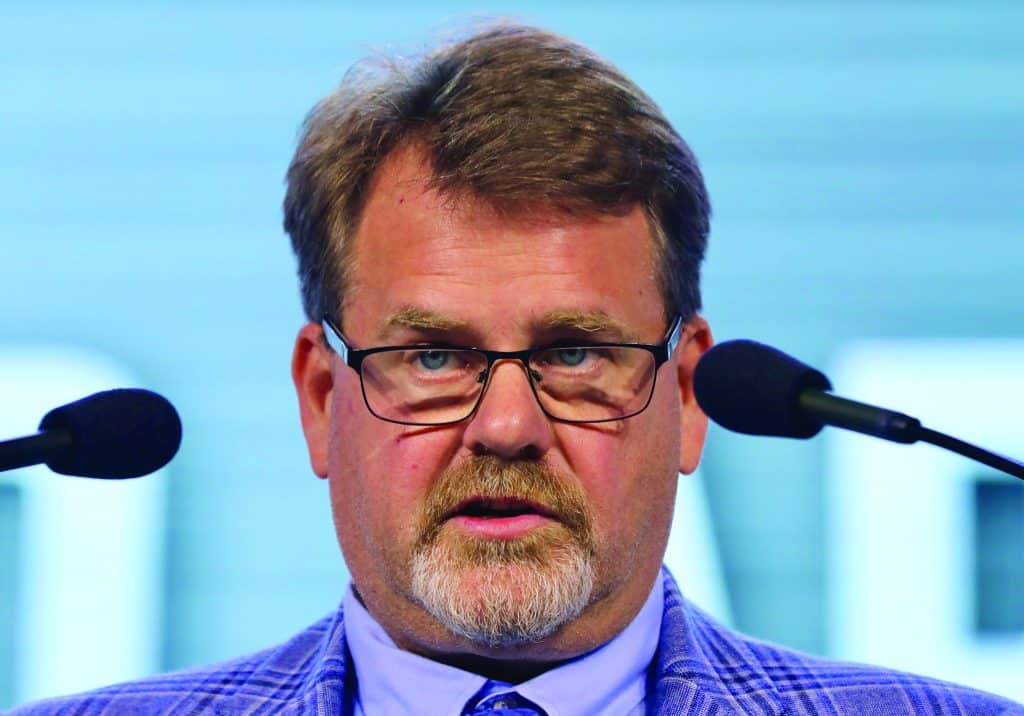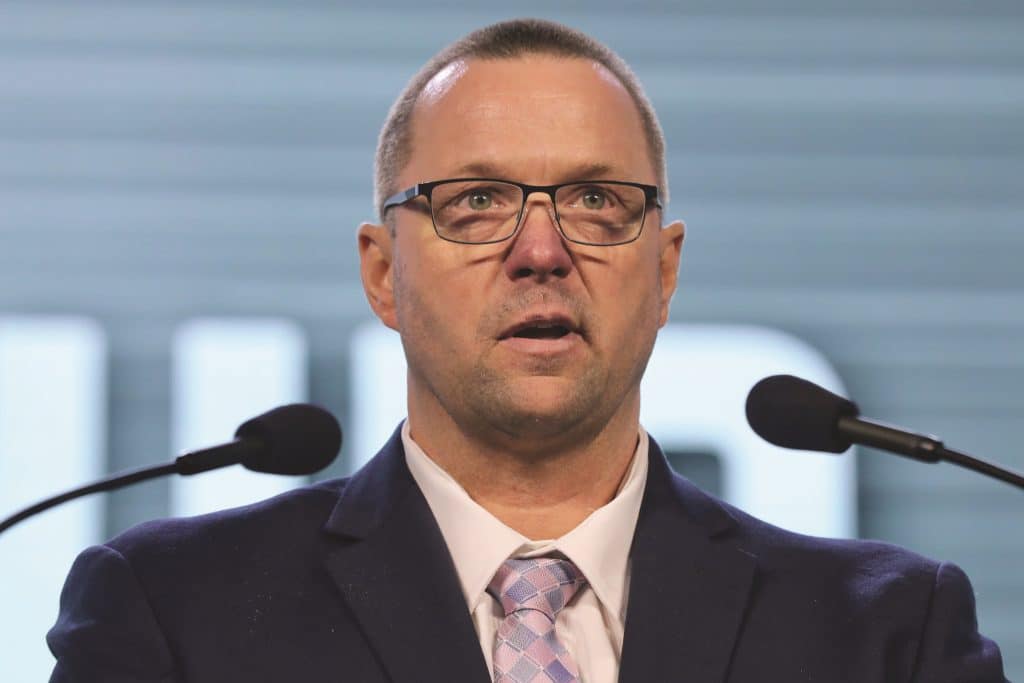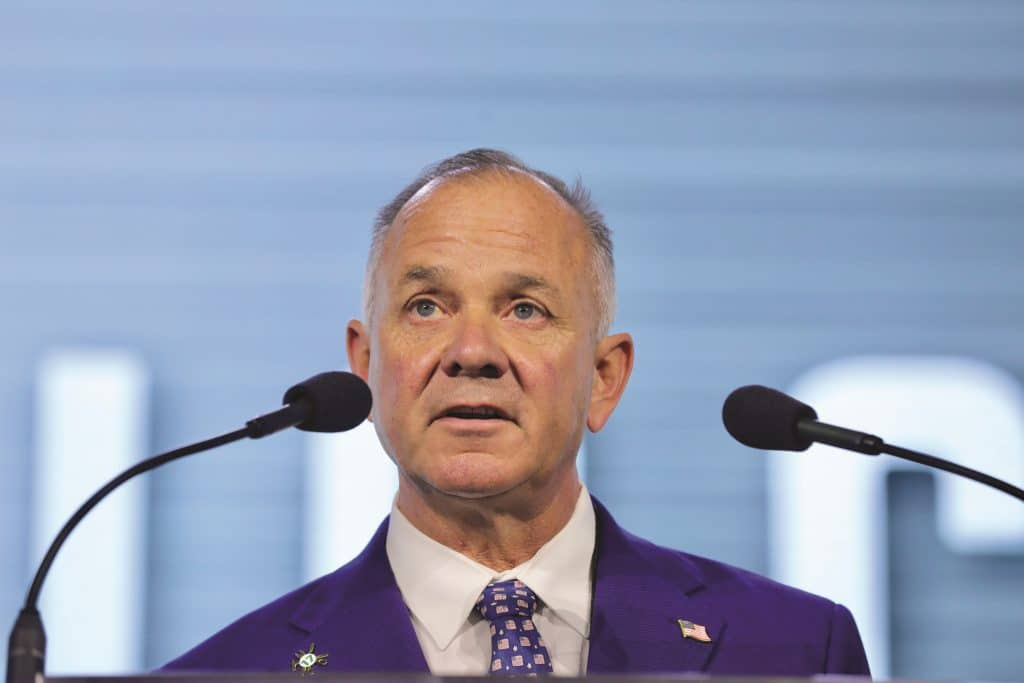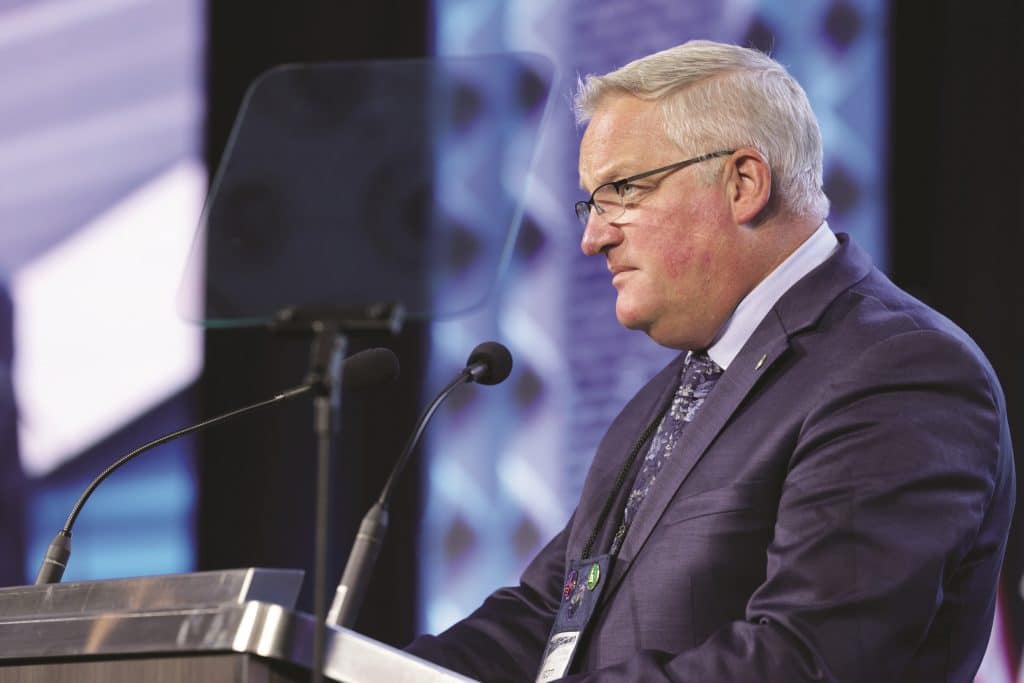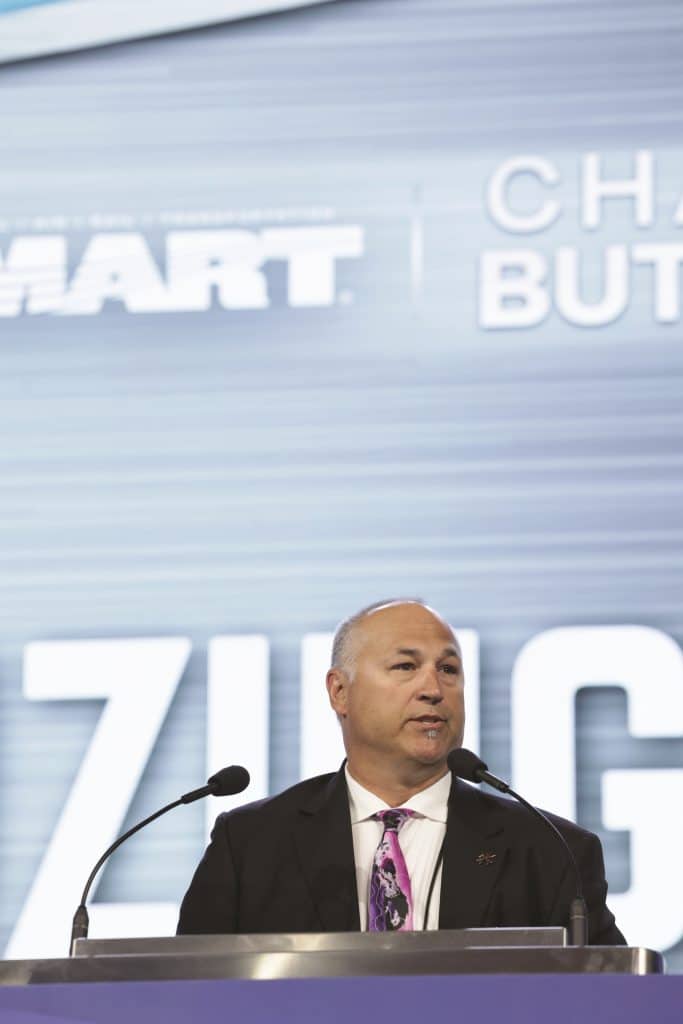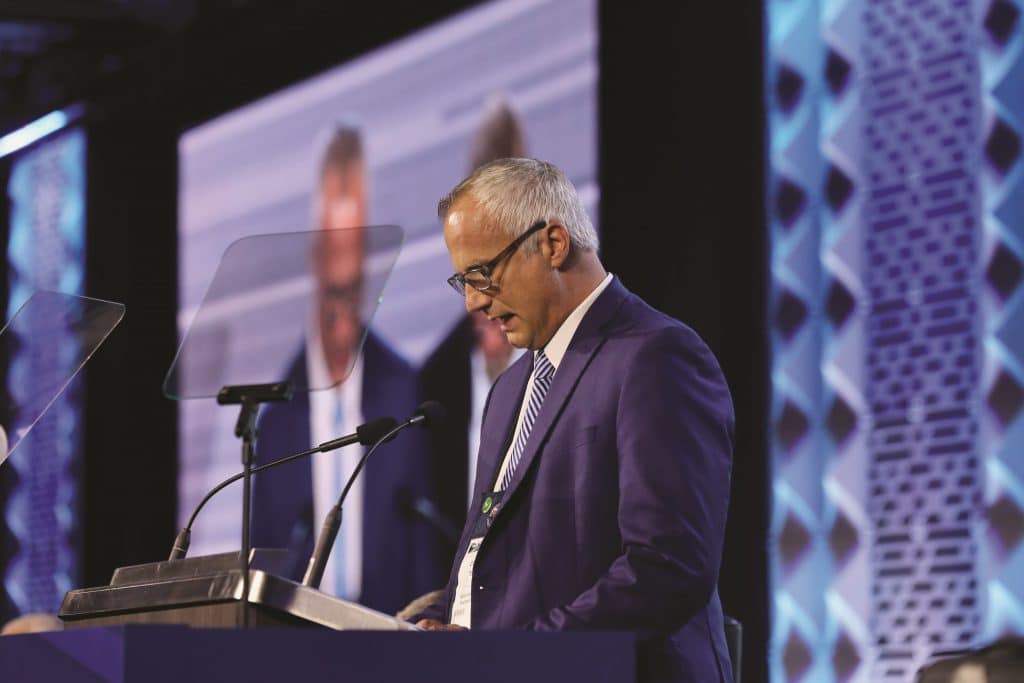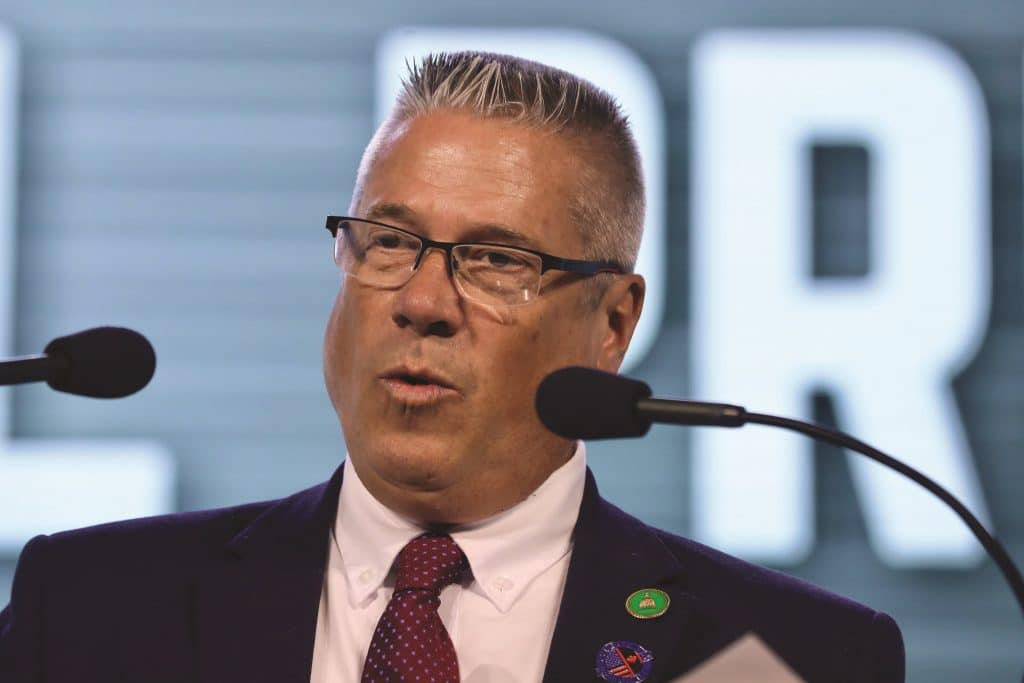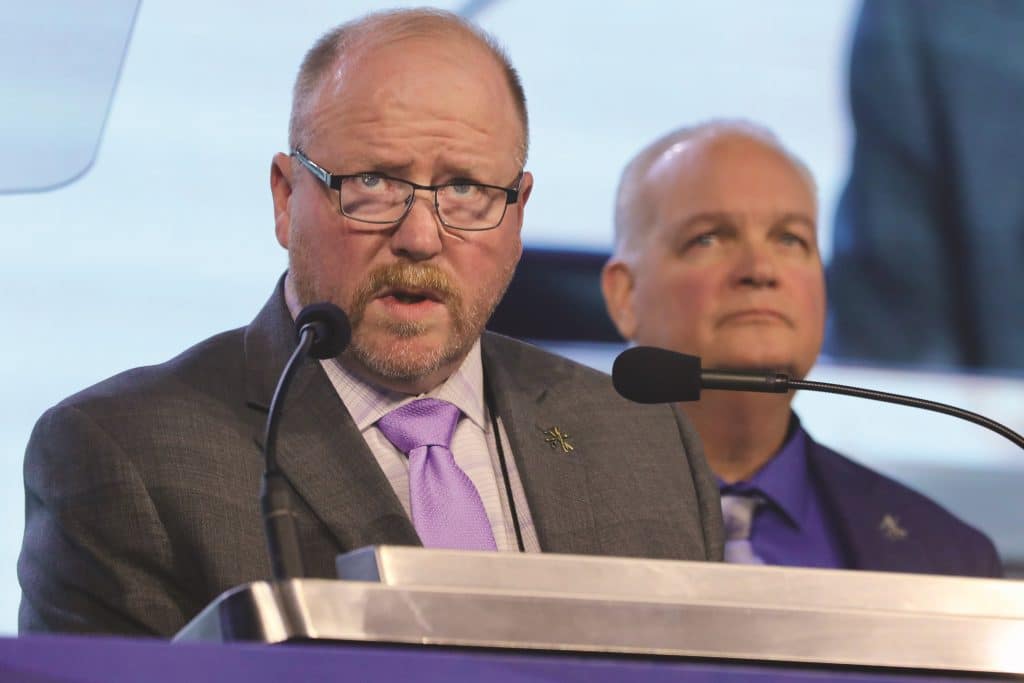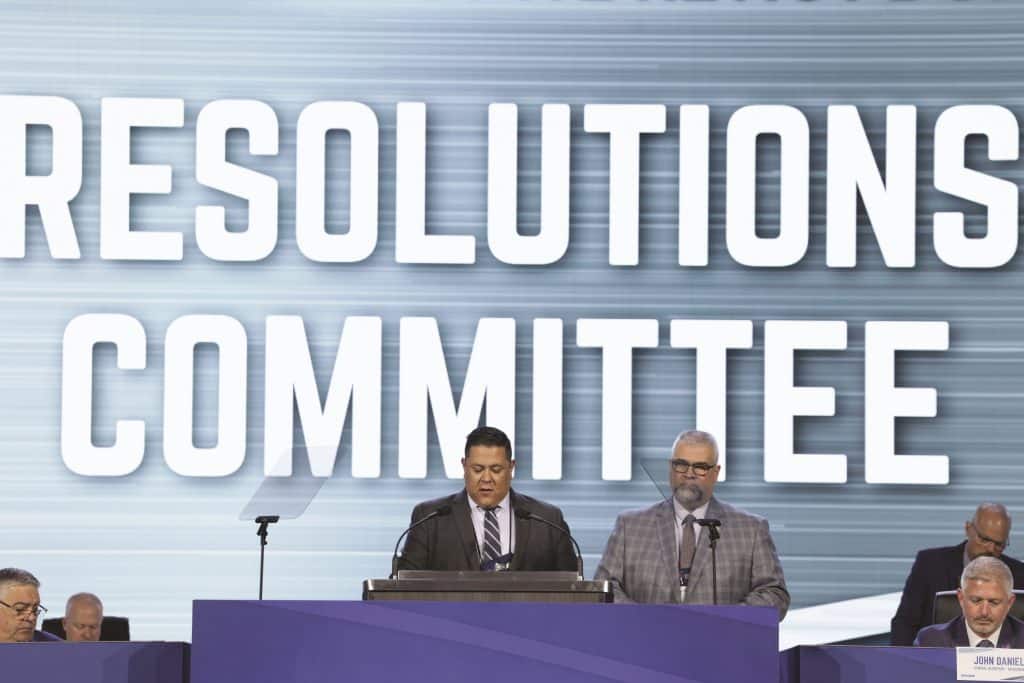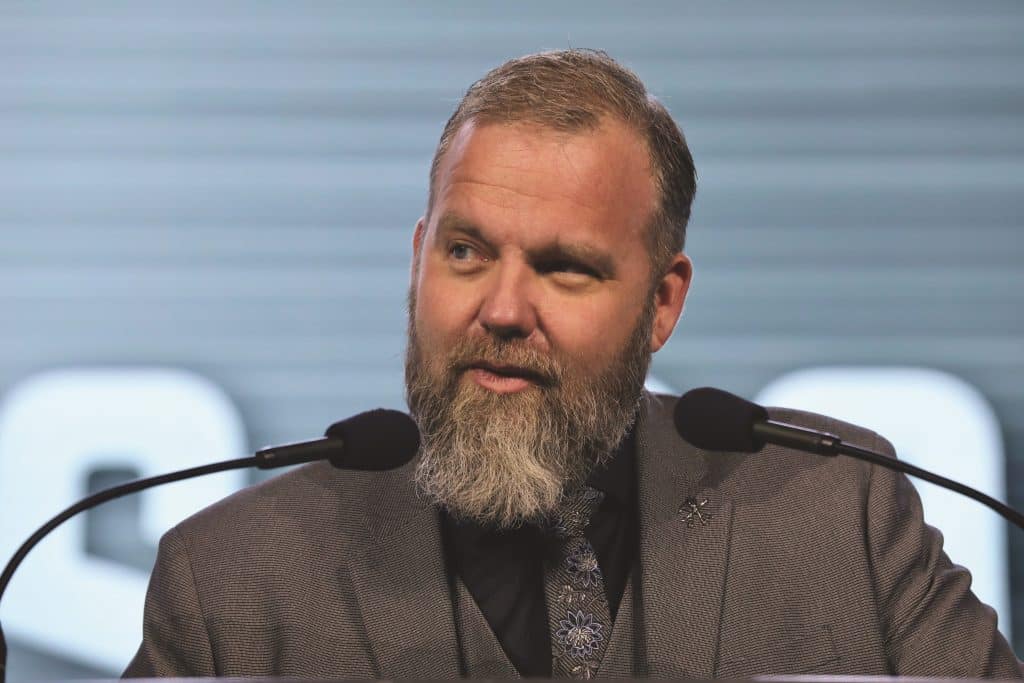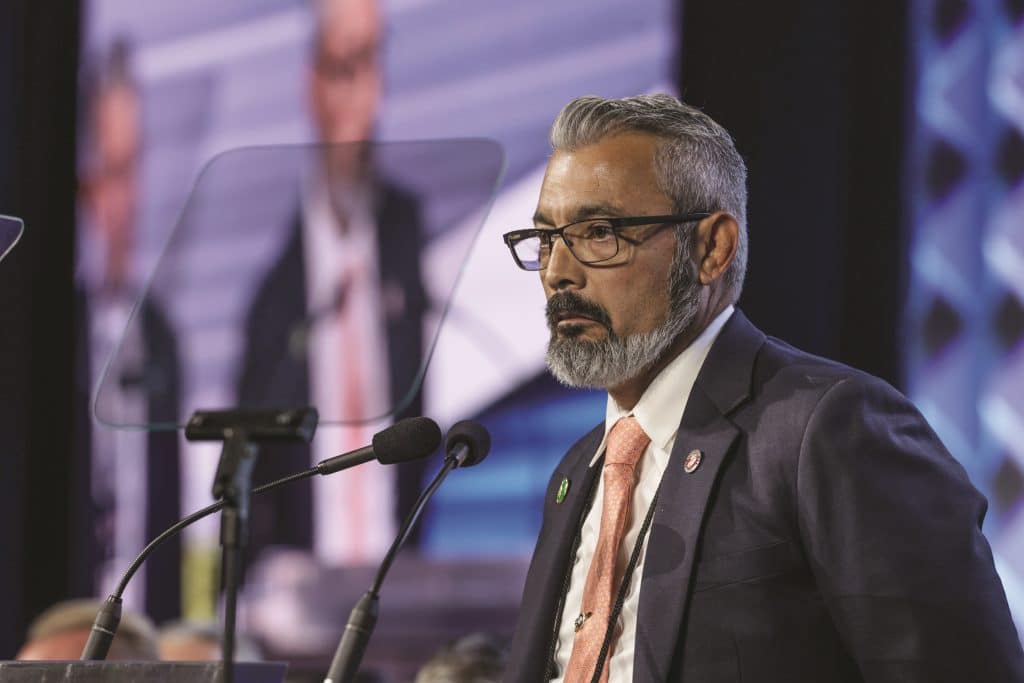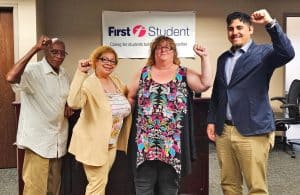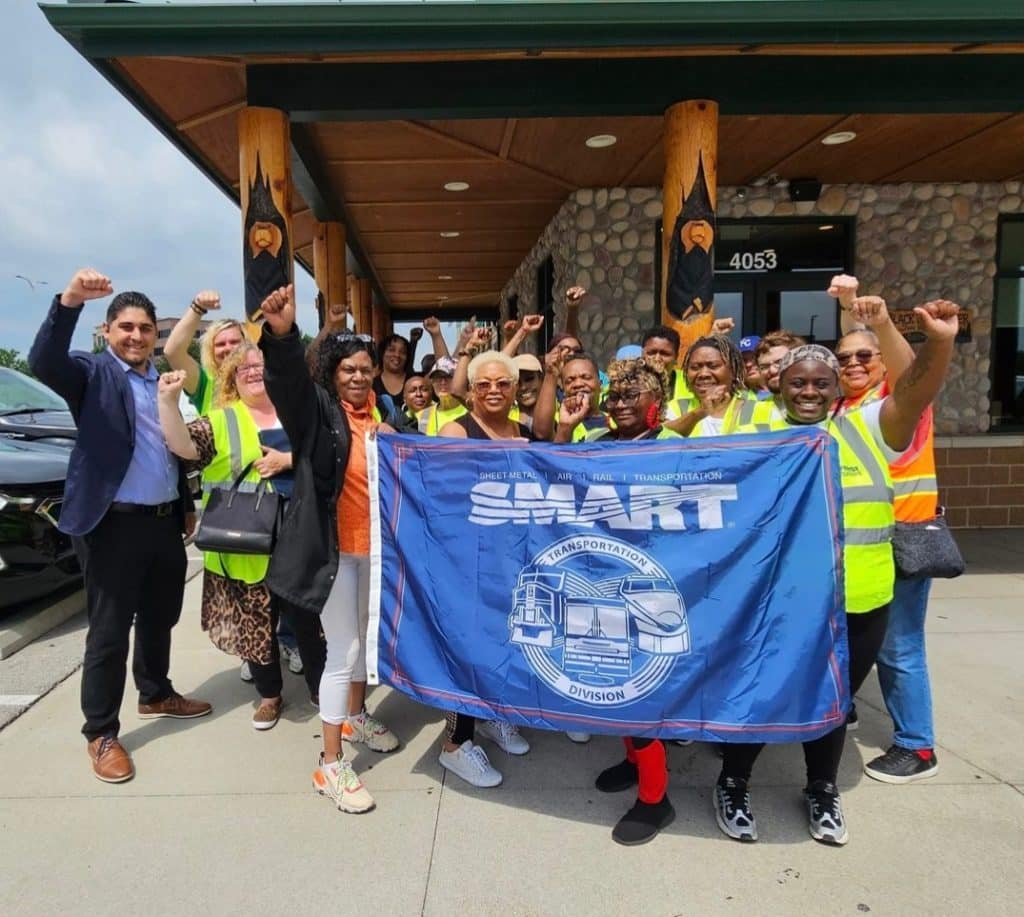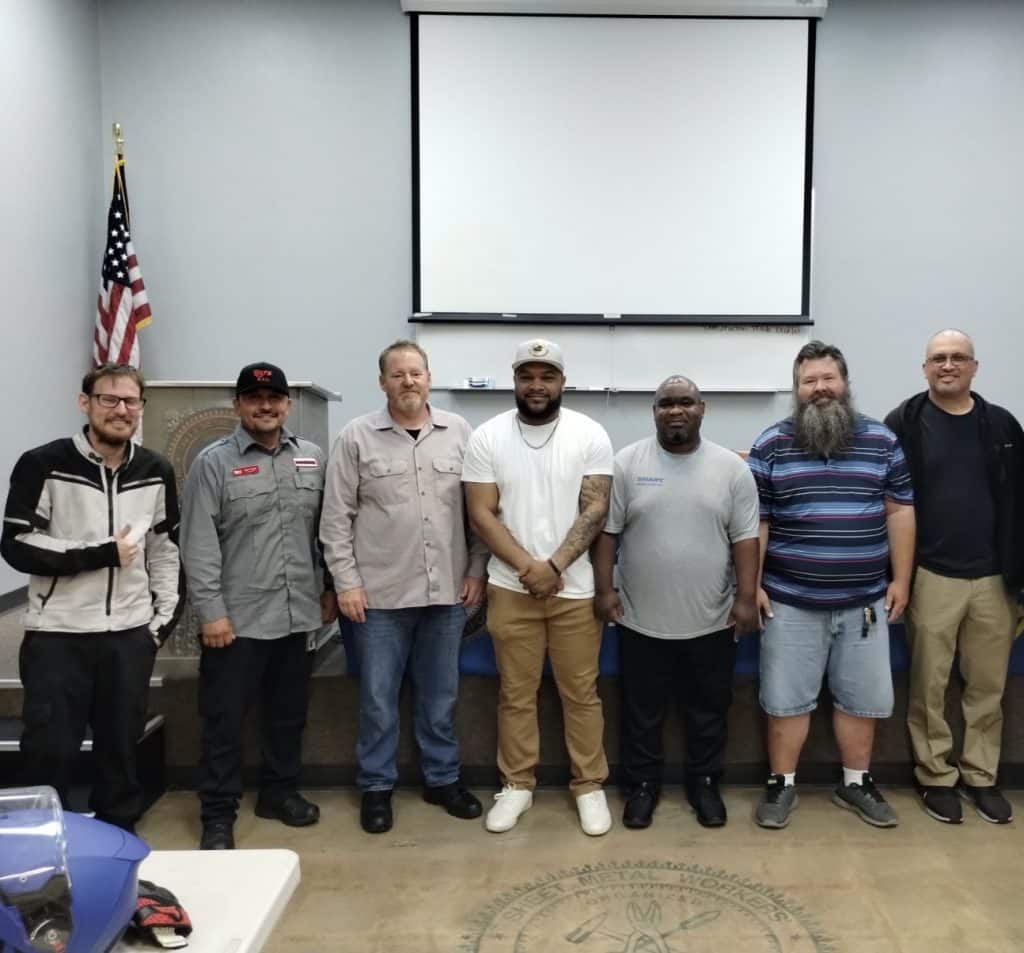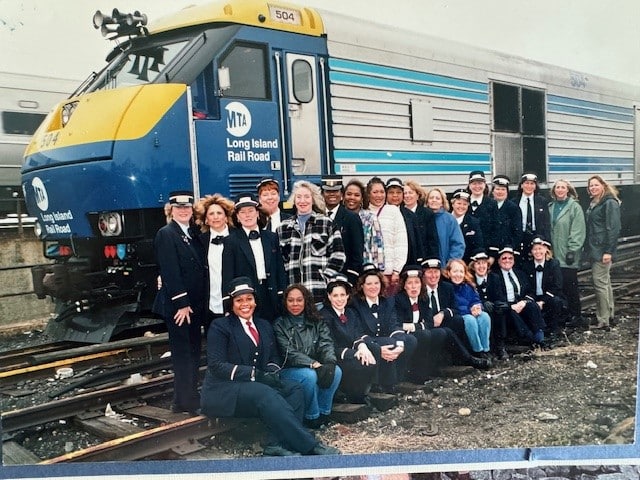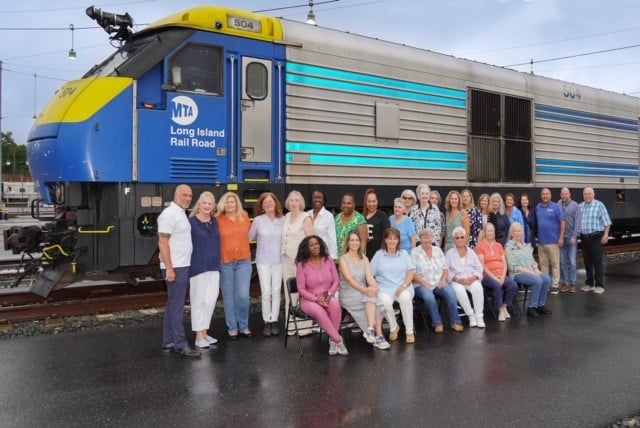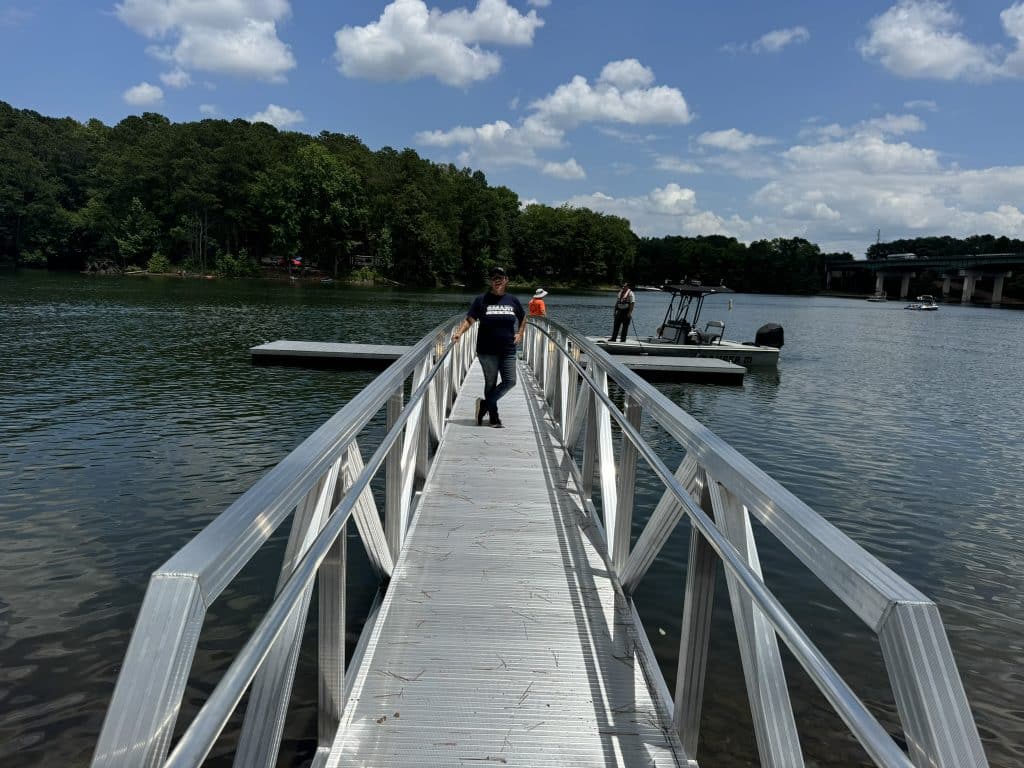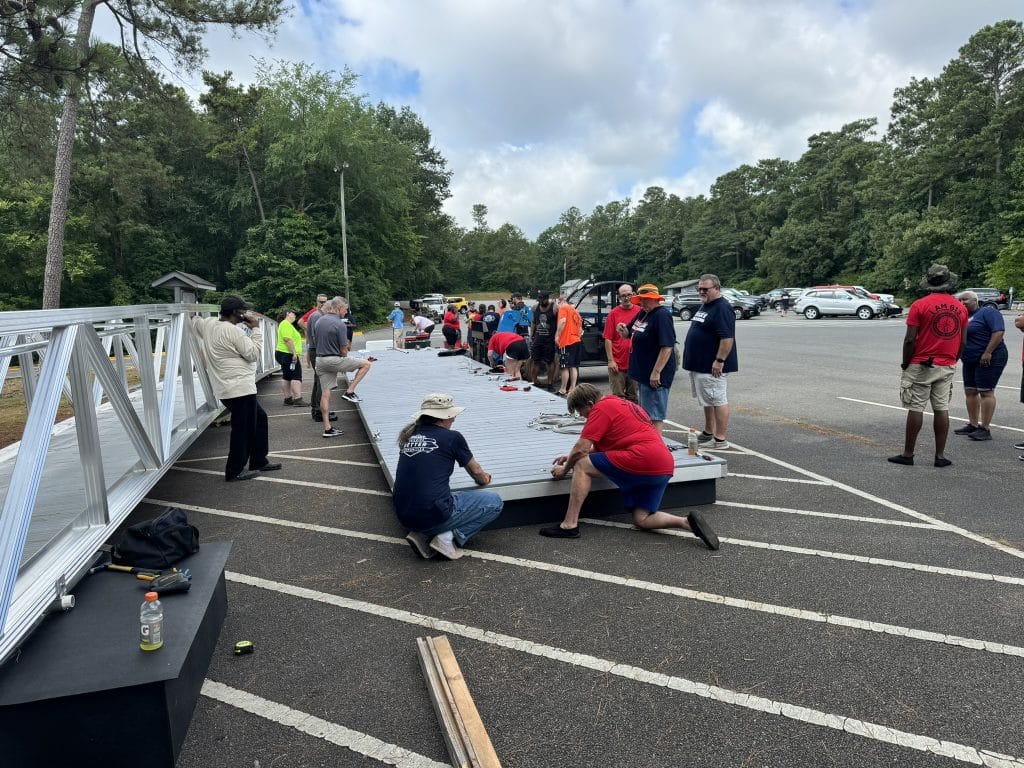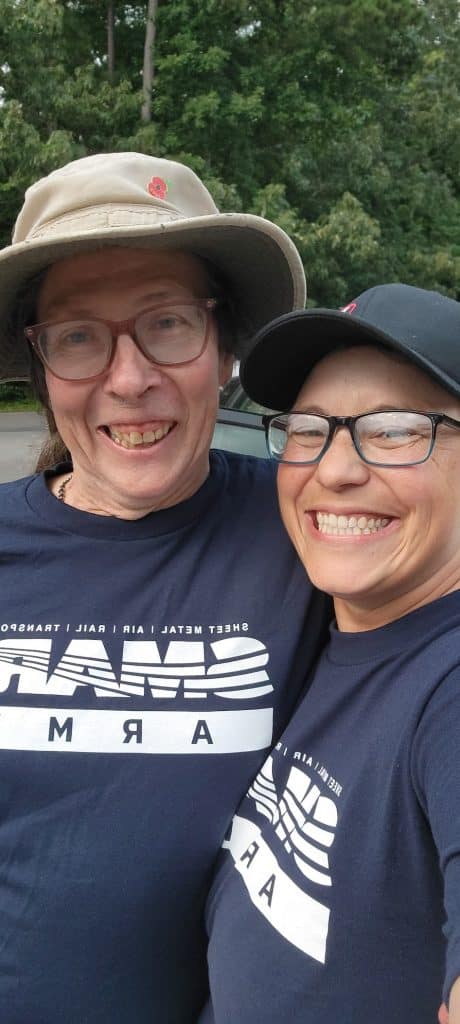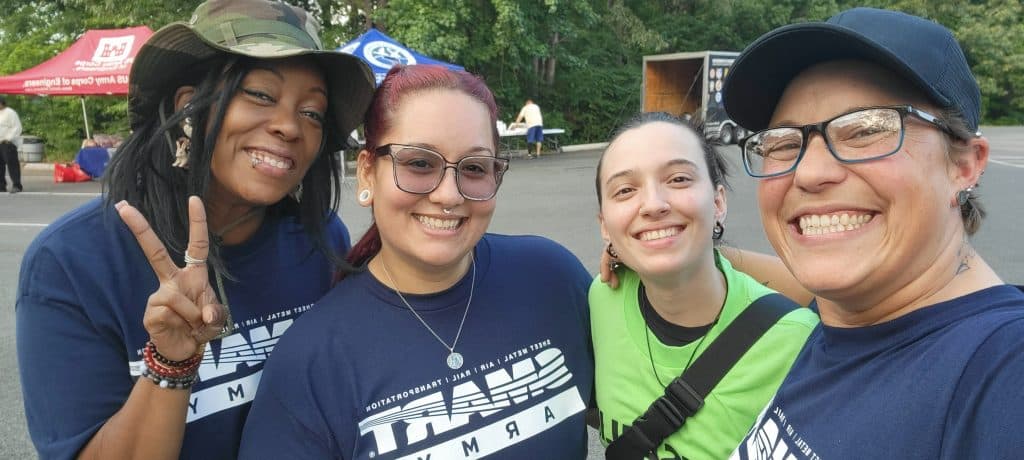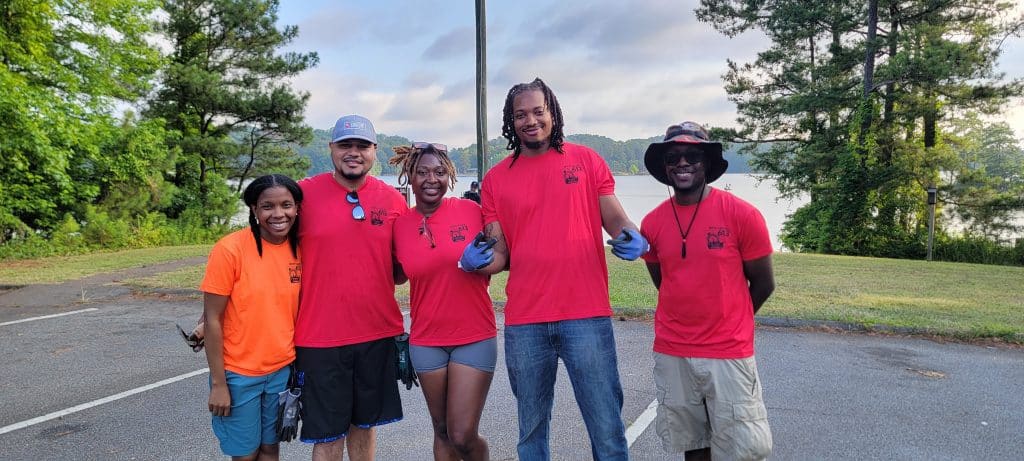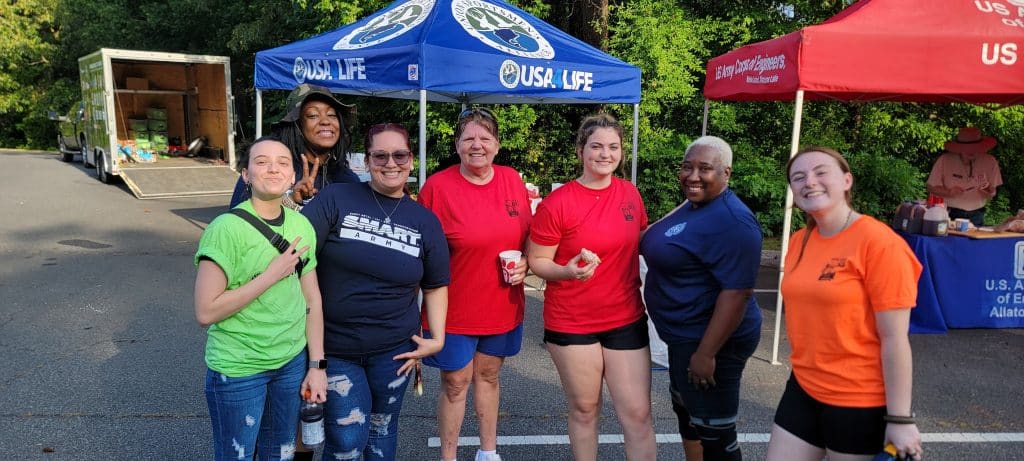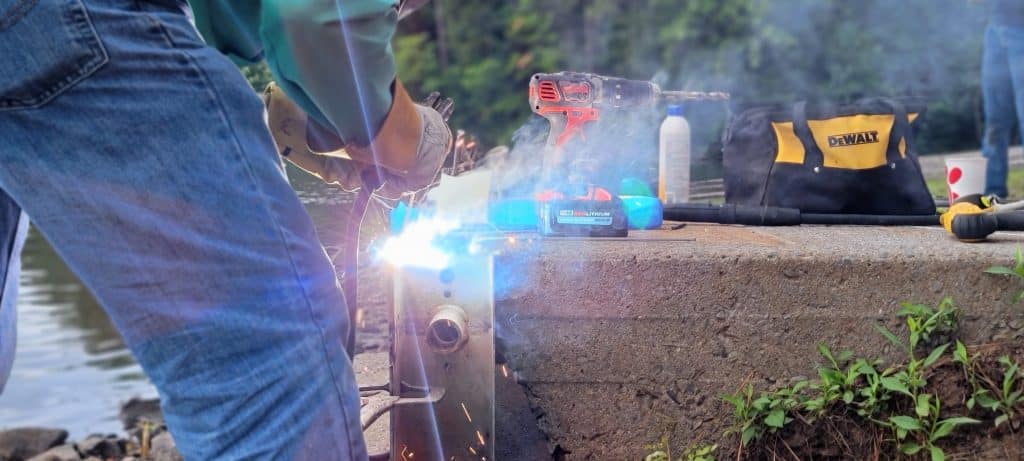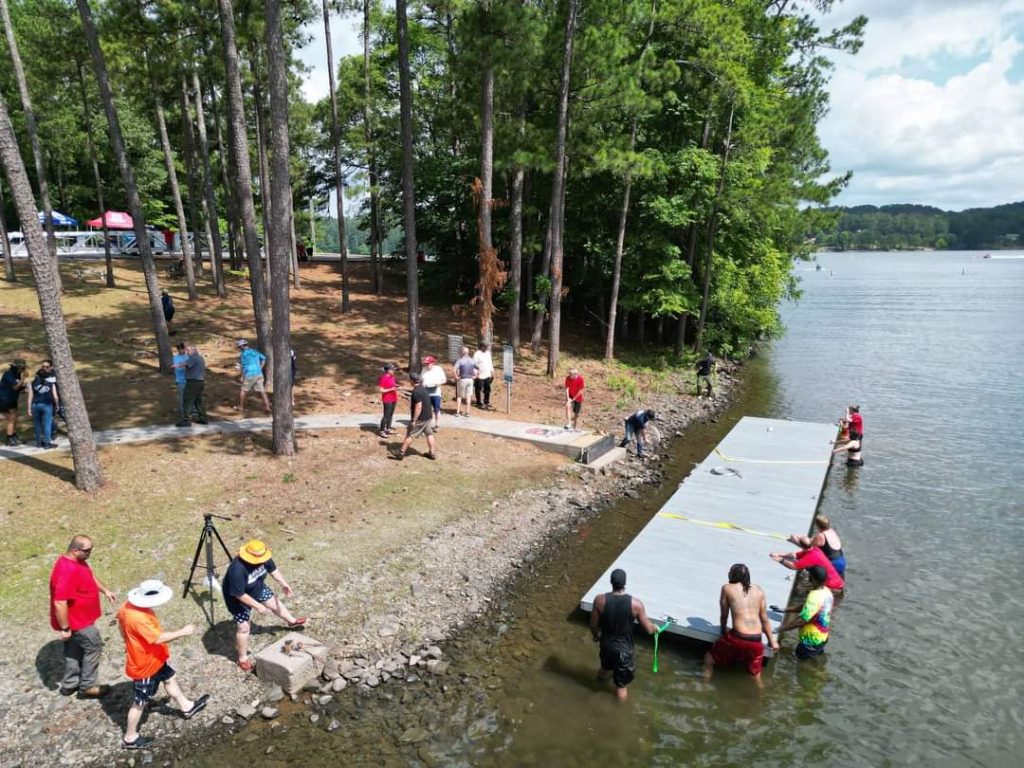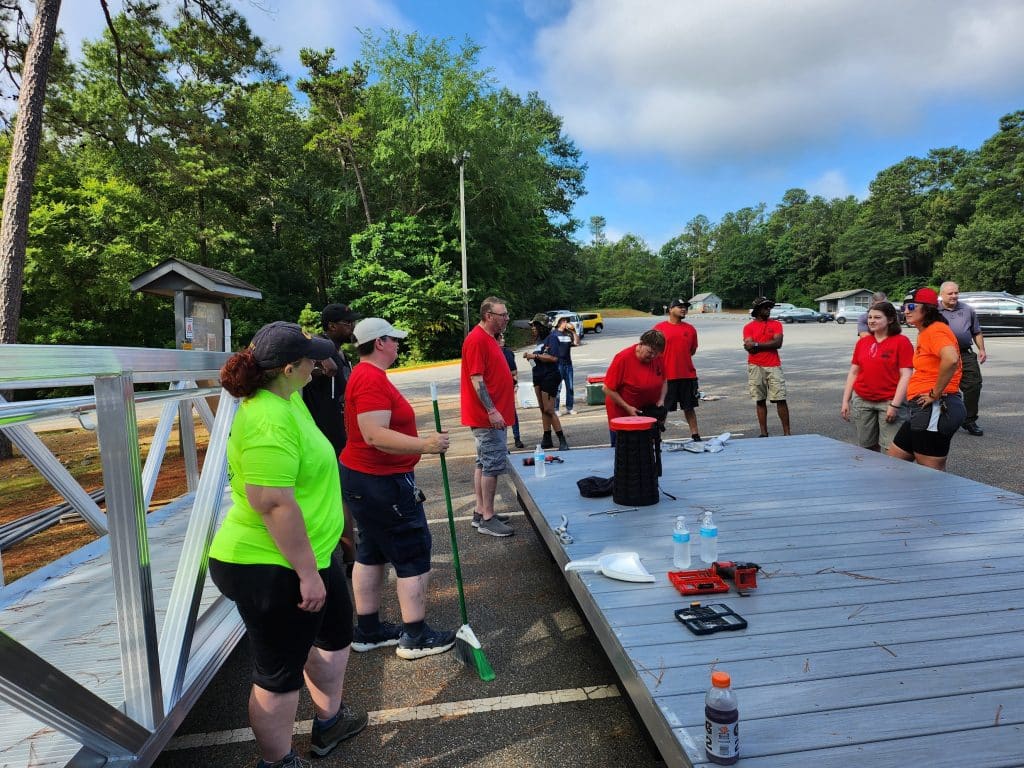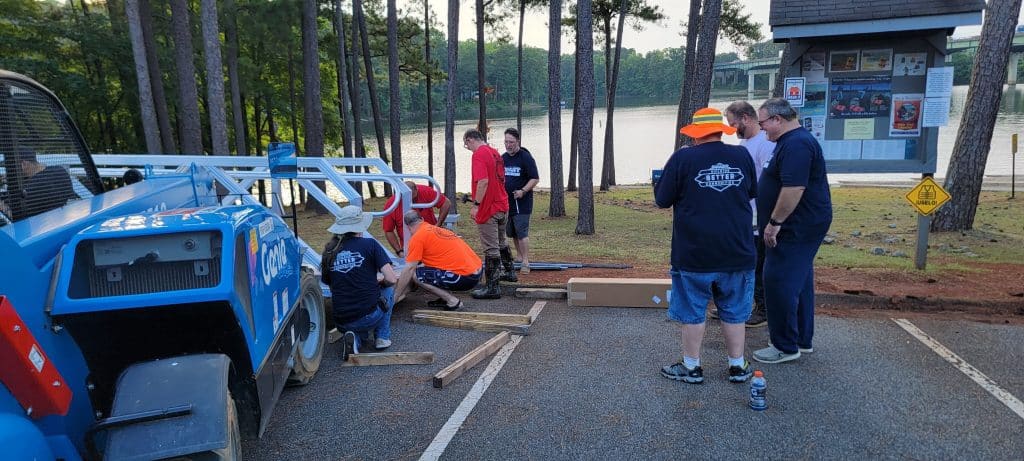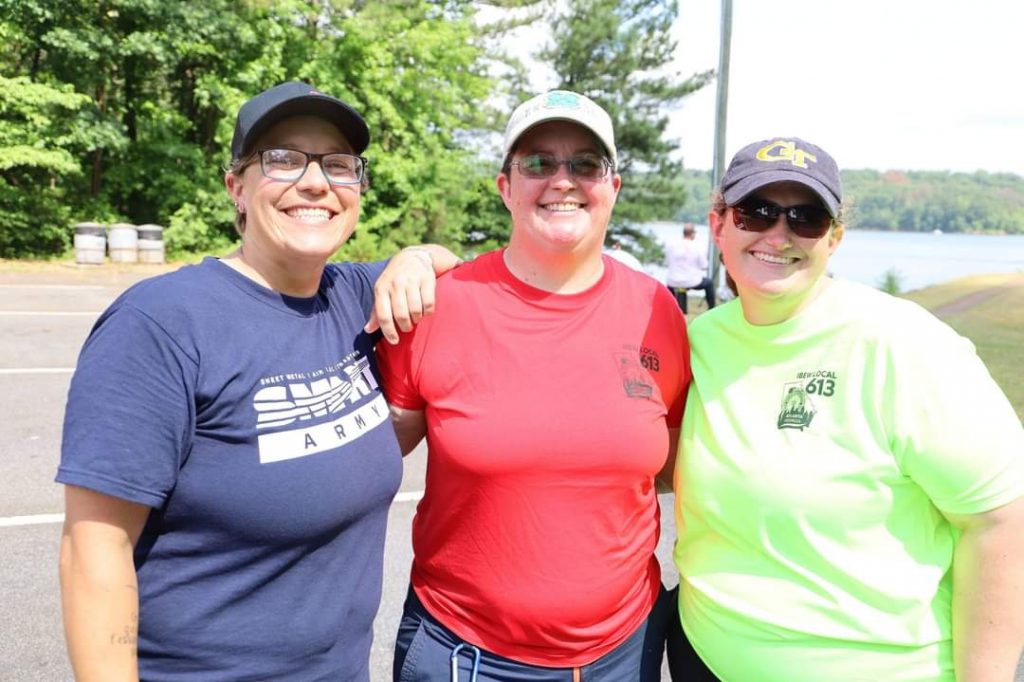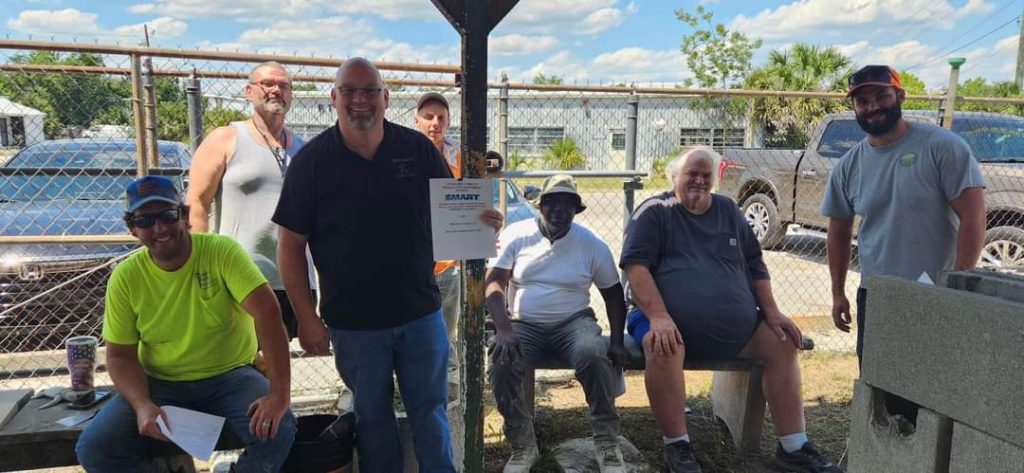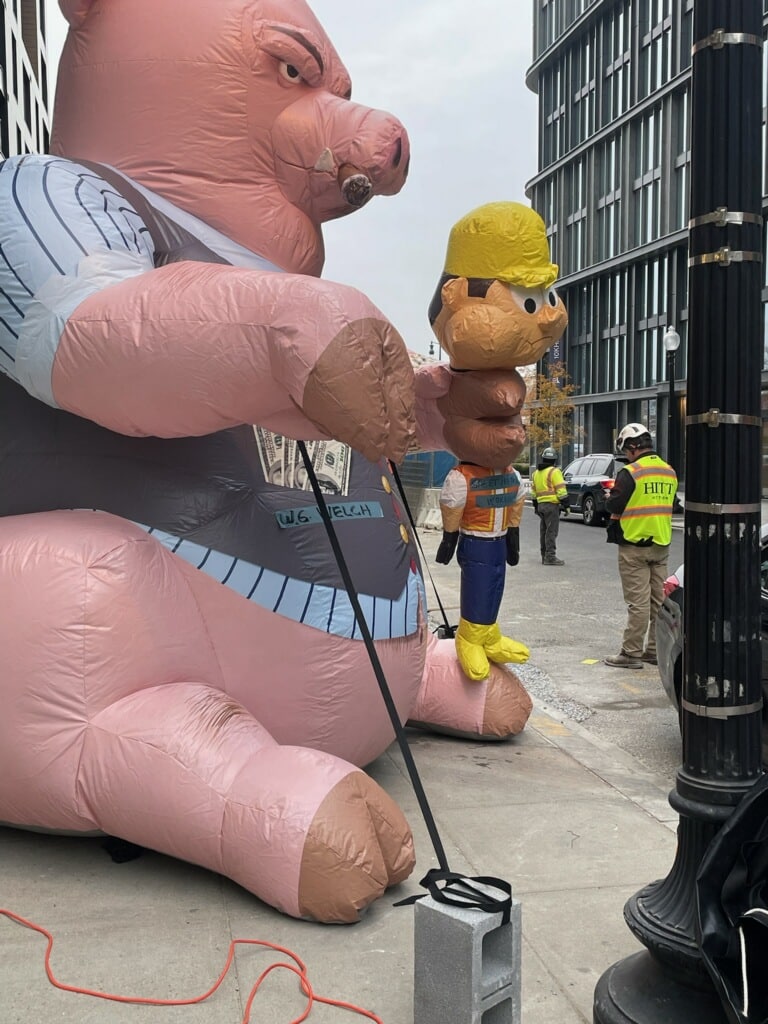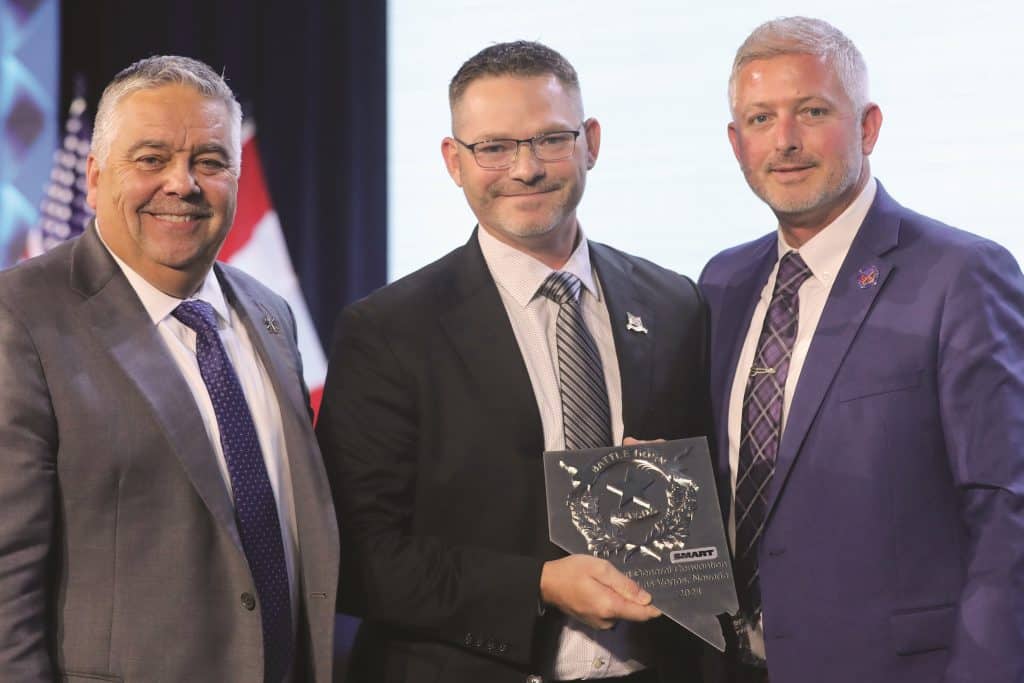
Helms: “We’re not done” bringing veterans into the trades
Delegates gave a warm welcome to Helmets to Hardhats Executive Director Martin Helms. Helmets to Hardhats works to bring United States military veterans into the unionized building trades, helping those who served to find good, family-sustaining careers. SMART has partnered with the program for more than 20 years.
In his remarks, Helms thanked SMART for playing its part by participating in Helmets to Hardhats and with programs like SMART Heroes. SMART had the third-highest number of “known successful transitions” (Helmets to Hardhats applicants who successfully begin their career in the building trades) in 2023, and is on pace to garner even more interest in 2024.
“SMART and Helmets to Hardhats are amazing teams,” he concluded. “Thank you for the last two decades of collaboration. I am motivated by what the future holds, and the H2H team looks forward to working with each one of you to increase our veteran recruitment. Thank you, God bless, and let’s continue to build America!”
Progress in partnership: Duncan and Hilger address delegates Convention delegates heard from SMACNA President
Carol Duncan and CEO Aaron Hilger on Thursday, August 15, with both speakers extolling the virtues of partnership in the unionized sheet metal industry at a time when enthusiasm for organized labor is skyrocketing.
“The power of progress and collaboration [is] shaping our industry’s future,” Duncan told delegates.
During her Thursday morning remarks, Duncan overviewed the important, trailblazing work SMART members and leaders are performing to make sure the unionized sheet metal industry is positioned for growth. Only by working together on initiatives like recruitment and retention, Belonging and Excellence for All and beyond, she told delegates, can union contractors and members make sure those projects are completed by high-road signatory employers and workers.
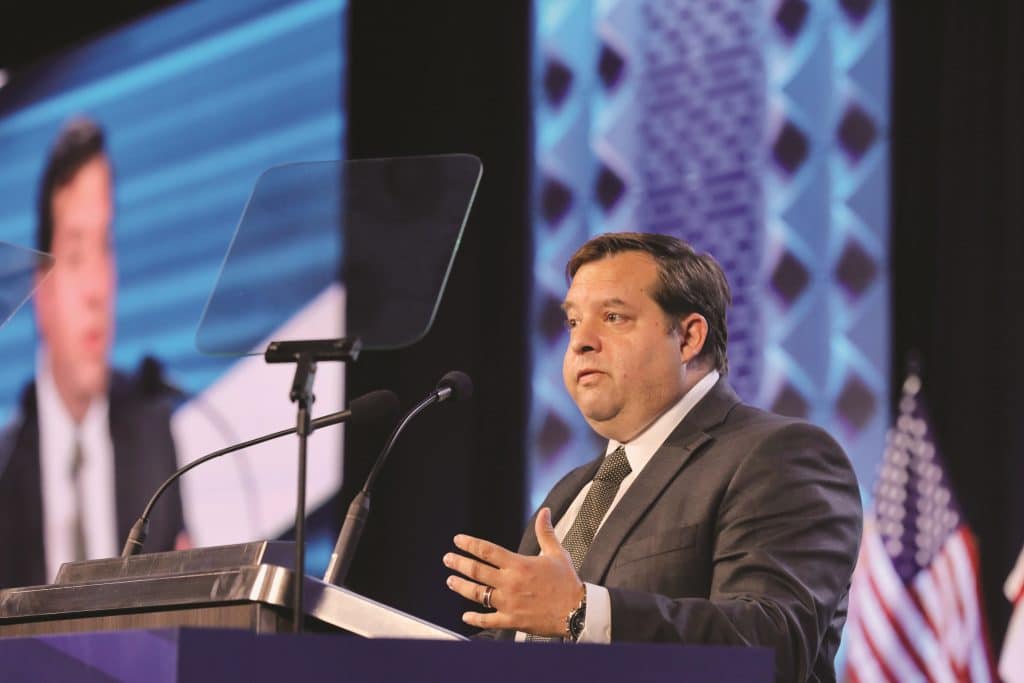
Hilger took the podium Thursday afternoon, speaking to the convention crowd about four challenges met by SMART and SMACNA in the last several years — and the work that still needs to be done.
The first challenge: the BE4ALL initiative and our organizations’ broader focus on making the unionized sheet metal industry more welcoming and inclusive of all. Another: strengthening government relations at the state and local level, winning legislation and ordinances that create work for SMART locals and SMACNA chapters.
That, Hilger went on, relates directly to the third challenge that SMART and SMACNA worked together to meet: indoor air quality (IAQ) work. The pandemic revealed to the North American public just how important proper ventilation is to staying healthy and safe. Now, he said, local unions and contractors need to collaborate intensely to increase IAQ market share.
Finally, Hilger discussed the ongoing opportunity and difficulty posed by the surge of megaprojects across North America, with 260 being actively tracked by the SMART-SMACNA megaprojects task force. Union sheet metal contractors and workers are staffing those projects — an enormous victory. Now, he said, we need to maintain our progress and continue staffing our core work.
“It’s a wonderful time to be a union contractor and a union member,” he concluded. “Thank you for your partnership as we continue to work together.”
Director Reports
Benson details organizing challenges met — with more growth to come
SMART Director of Organizing Jason Benson provided delegates with an overview of the department’s structure before detailing the challenges our union has met through organizing: recruiting, organizing nonunion workers, engaging in job actions to flip nonunion projects to signatory status, and much more. Over the last five years, there have been more than 29,000 new members organized into SMART, Benson said.
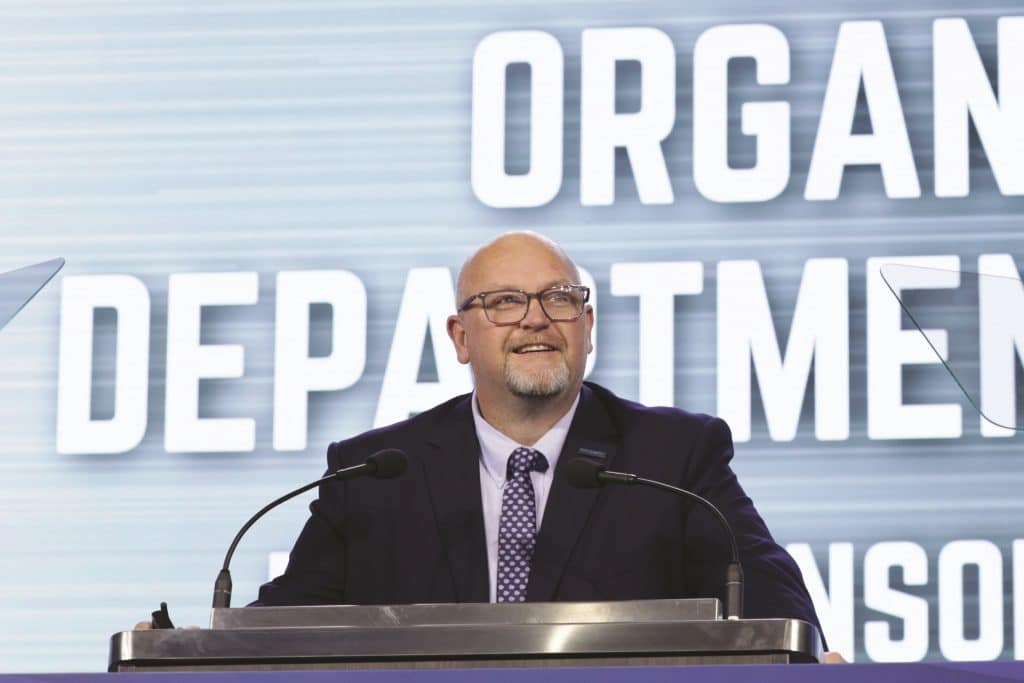
He also offered a preview of the work we have yet to do, with billions of dollars of work coming down the pipeline.
Dodd reports on SMART Governmental Affairs Dept.
Over the last several years, the SMART Governmental Affairs Department has partnered with pro-union legislators and federal officials to pass and implement policies that benefit SMART members and working families. After thanking staff members Tiffany Finck-Haynes, Ben Donnelly-Fine, Shareka Bannerman, Angela Watson and Jackie Meisner, Department Director Steve Dodd presented to delegates on the progress that has been made in the last several years — and the dangerous, anti-union policies members can expect from a second Trump administration.
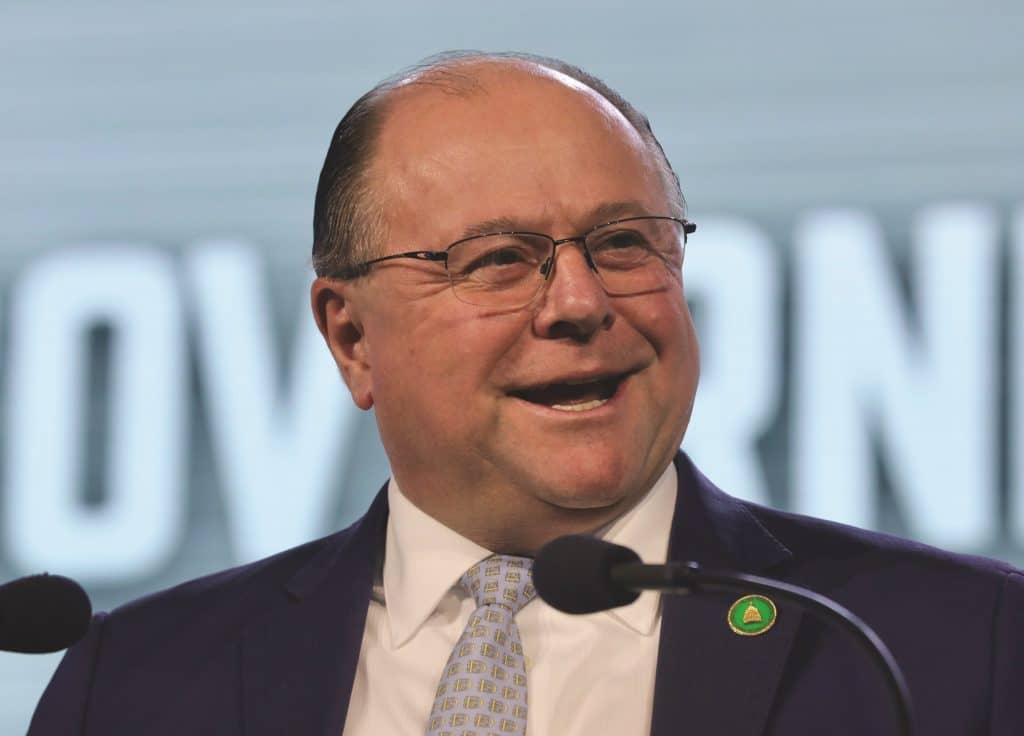
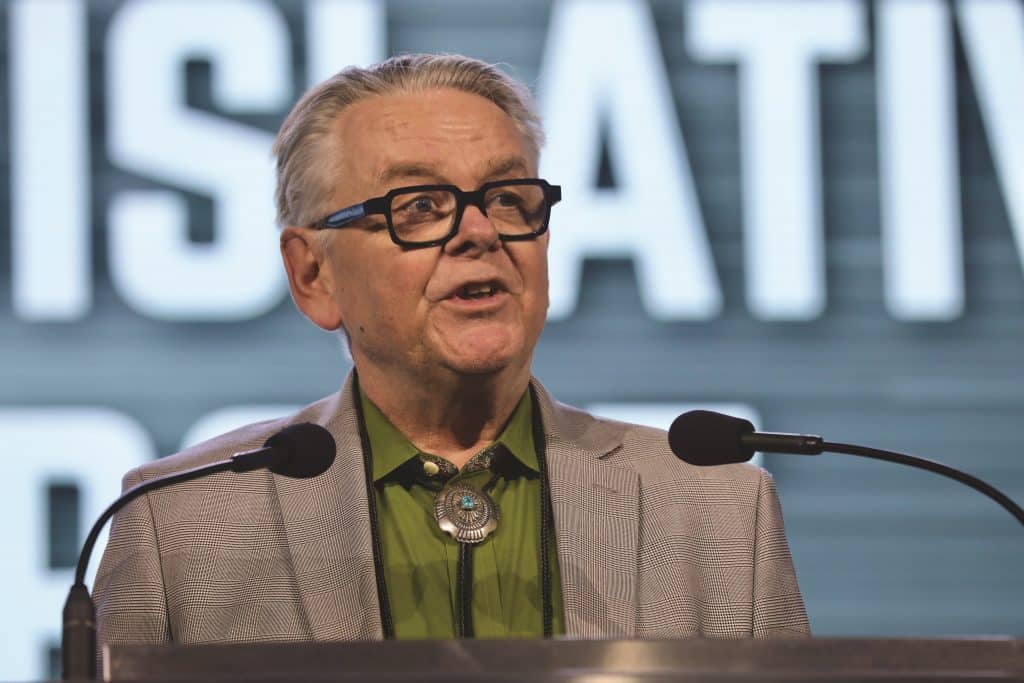
“I know you’ve heard all week long about the damages that [Donald Trump] did when he was in office,” Dodd declared. “What we have now is an unbelievable situation like we’ve never had in our lives … you better fight like hell for your country and do whatever you can to get Kamala Harris in office in November.”
SMART-TD legislative efforts
Transportation Division National Legislative Director Greg Hynes and Alternate Legislative Director Jared Cassity presented their departmental report to the convention delegates. Their report emphasized the department’s efforts to engage the membership in advocating for SMART-TD legislation. Multiple bills currently in both the U.S. Senate and House of Representatives are pivotal to freight rail members’ safety and quality of life.
Financial report details current strength, opportunity ahead
SMART General Secretary-Treasurer John Daniel, Controller Warren May and SMART-TD Director of Administration Matt Dolin delivered a report on the financial state of the union, validated by an independent auditor to ensure transparency and accountability at every step. Daniel overviewed SMART’s meticulous financial processes before May and Dolin presented — in great detail — the union’s finances, which show significant growth and stellar overall health.
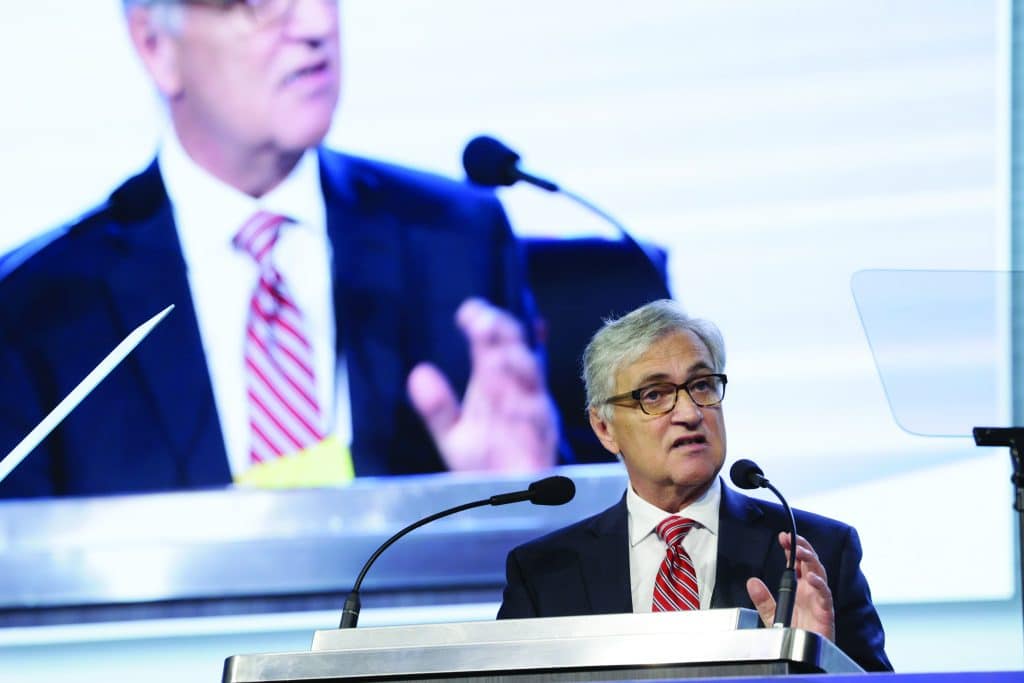
SMART’s assets are more than six times greater than its liabilities. Daniel noted that this strong position is one we need to build on to ensure further success.
“Together, we will build a future our members and their families deserve,” Daniel said. “The future looks bright, brothers and sisters.”
This was May’s final convention, as the steward of SMART’s Financial Department is set to retire at the end of 2024. General Secretary-Treasurer Daniel thanked May for his tireless work and thoughtful administration, calling him “instrumental” to SMART’s success.
“I know that you aren’t a sheet metal worker, a roofer, a railroader, a bus operator or a transit operator by trade, but you are truly one of us, and you’re part of our family,” General President Michael Coleman added.
“It’s been an honor and a privilege to serve this great International,” May told delegates.
SASMI benefit continues to support participating locals
Administrator Ken Colombo presented to delegates on the ongoing success of the Stabilization Agreement of the Sheet Metal Industry (SASMI). Now in its 50th year, SASMI continues to offer unemployment/underemployment benefits to participating local unions and members, Colombo said. But the fund has also expanded and innovated, using the SASMI incentive to help sheet metal workers travel to megaprojects in other locations, for example, and continuously introducing new perks — including a new paid sick leave benefit.
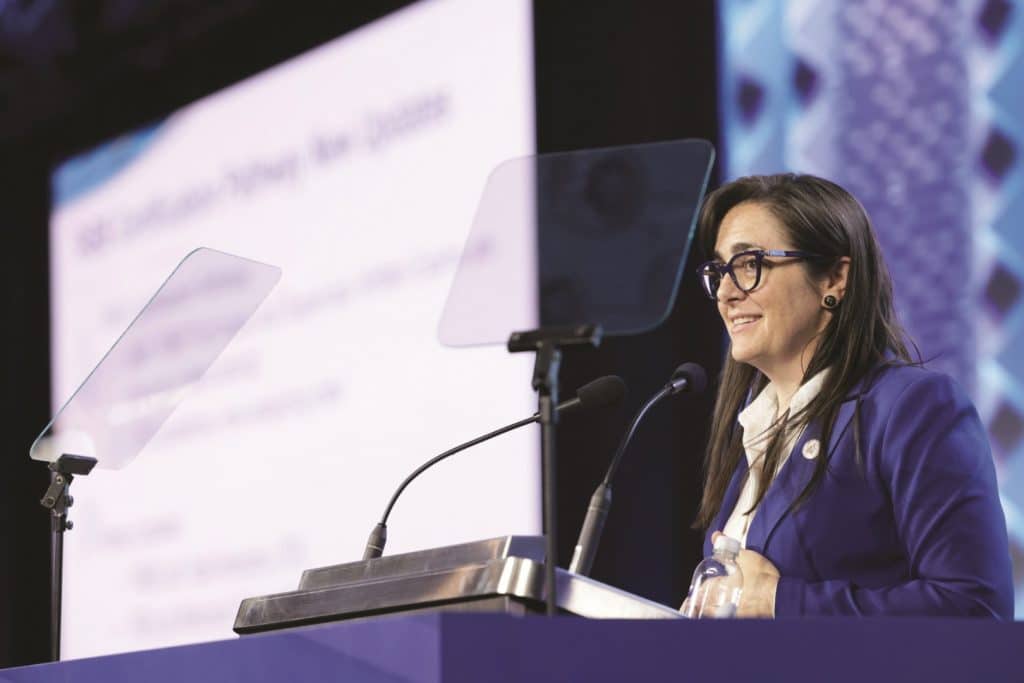
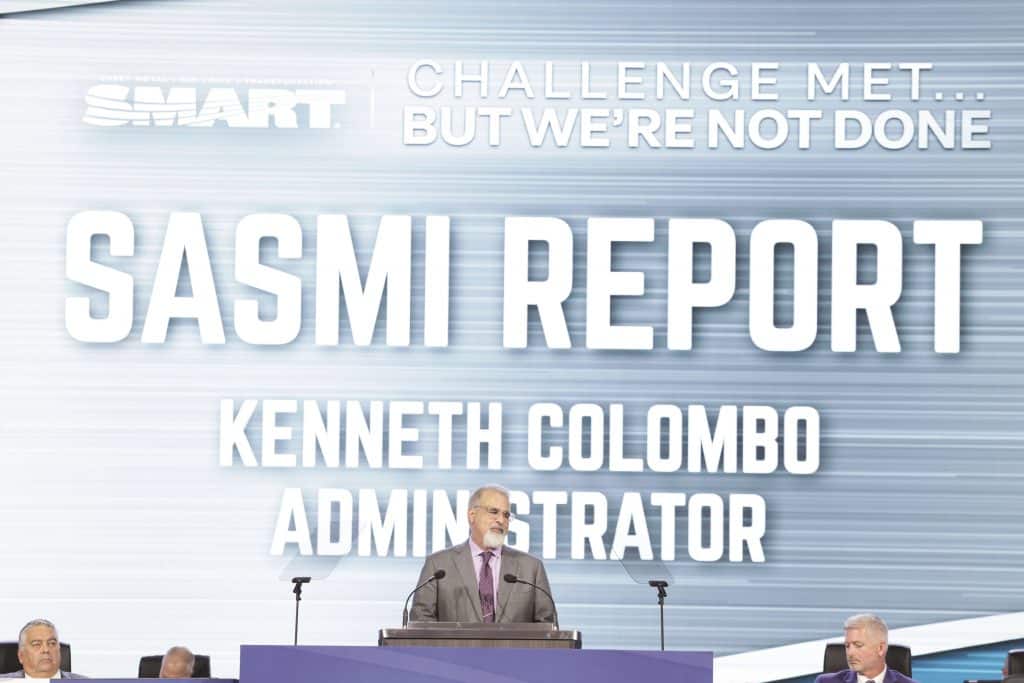
NEMI administrator presents to delegates on resources, victories
National Energy Management Institute (NEMI) Administrator Lisa Davis presented to delegates on the work the fund has pursued since 2019, including developing new resources for affiliates and updates to Testing, Adjusting and Balancing Bureau (TABB) certifications. Davis also explained how NEMI has helped local unions and regional councils win policy and regulatory victories across the United States, creating more work for sheet metal members, as well as efforts to turn back attacks on our fire life safety and indoor air quality work jurisdiction.
Greficz recaps SMART-TD organizing successes
SMART-TD Organizer Nick Greficz (TD Local 278, Jackson, Mich.) presented the Transportation Division Organizing Department’s report. The report included a breakdown of the success TD’s organizing has experienced in the recent past and the importance of continued growth for the strength of our union. Methodologies to achieve this growth include the continued implementation of tools such as the Action Builder platform and the organizer portal on SMART’s website.
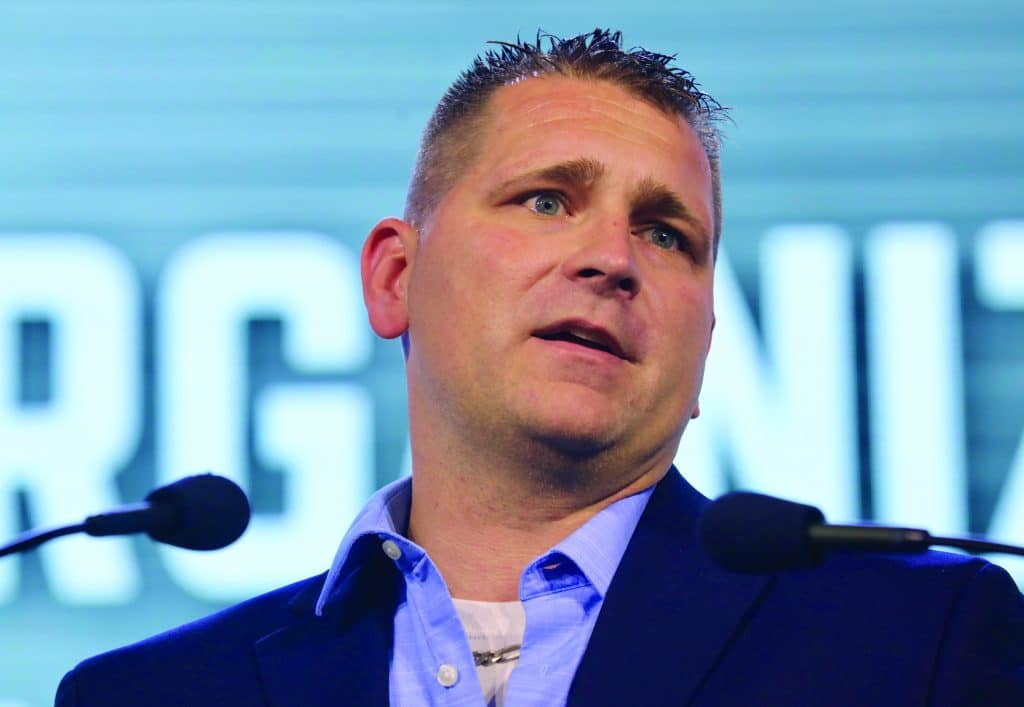
Brother Greficz summed up his vision in saying, “Success is the result of dedication, commitment and the collective participation of everyone involved. Every member, local officer and general committee officer is an organizer!”
